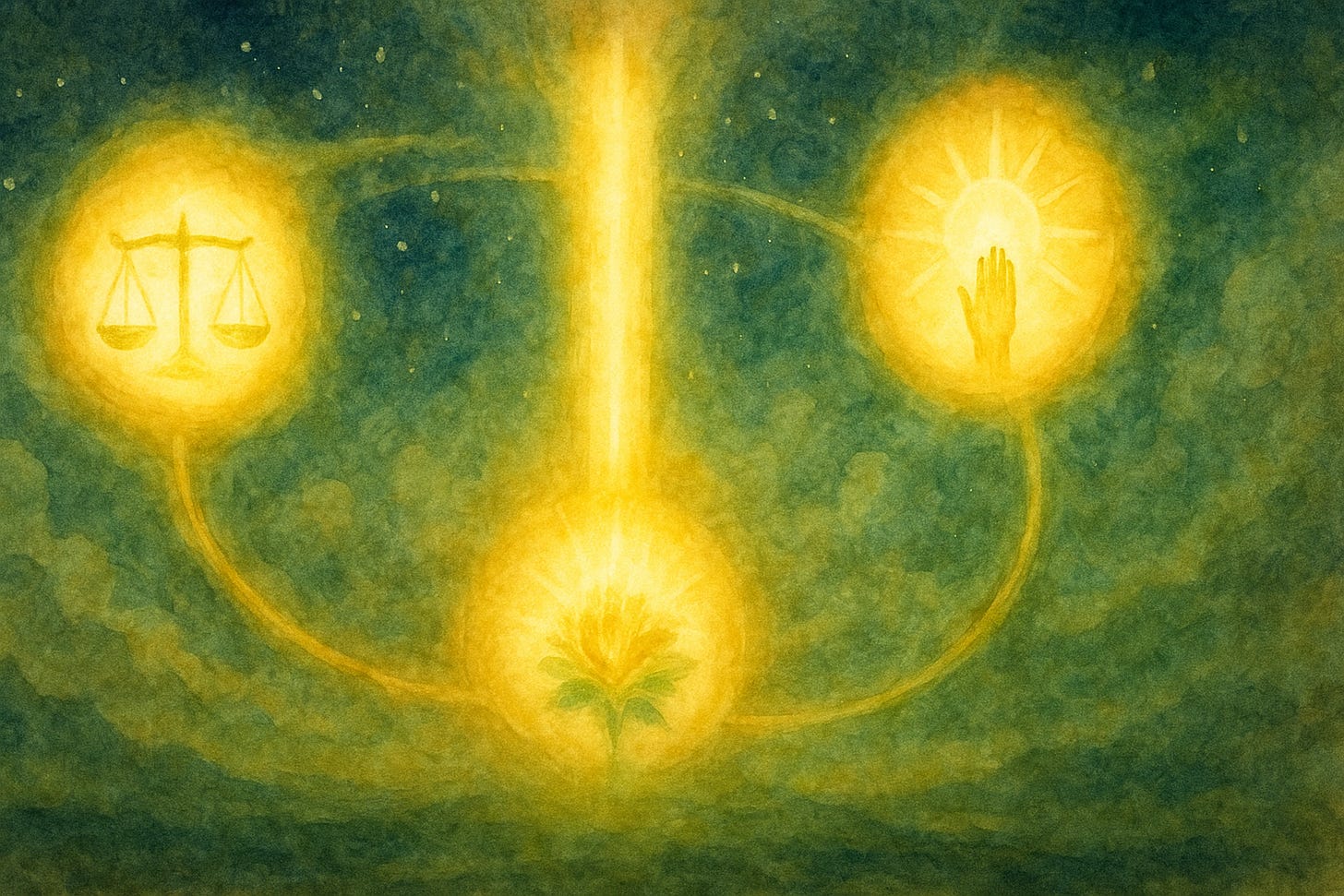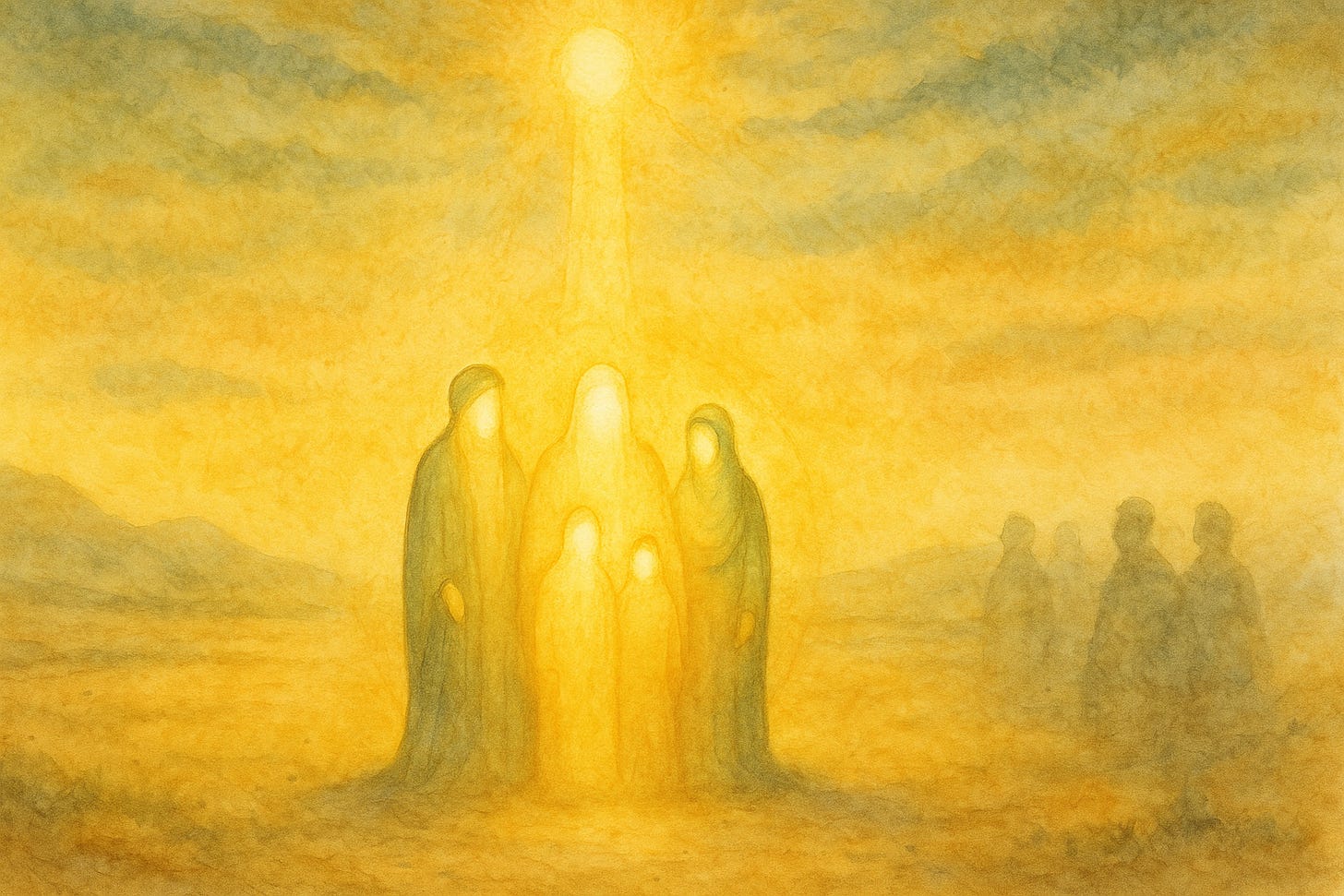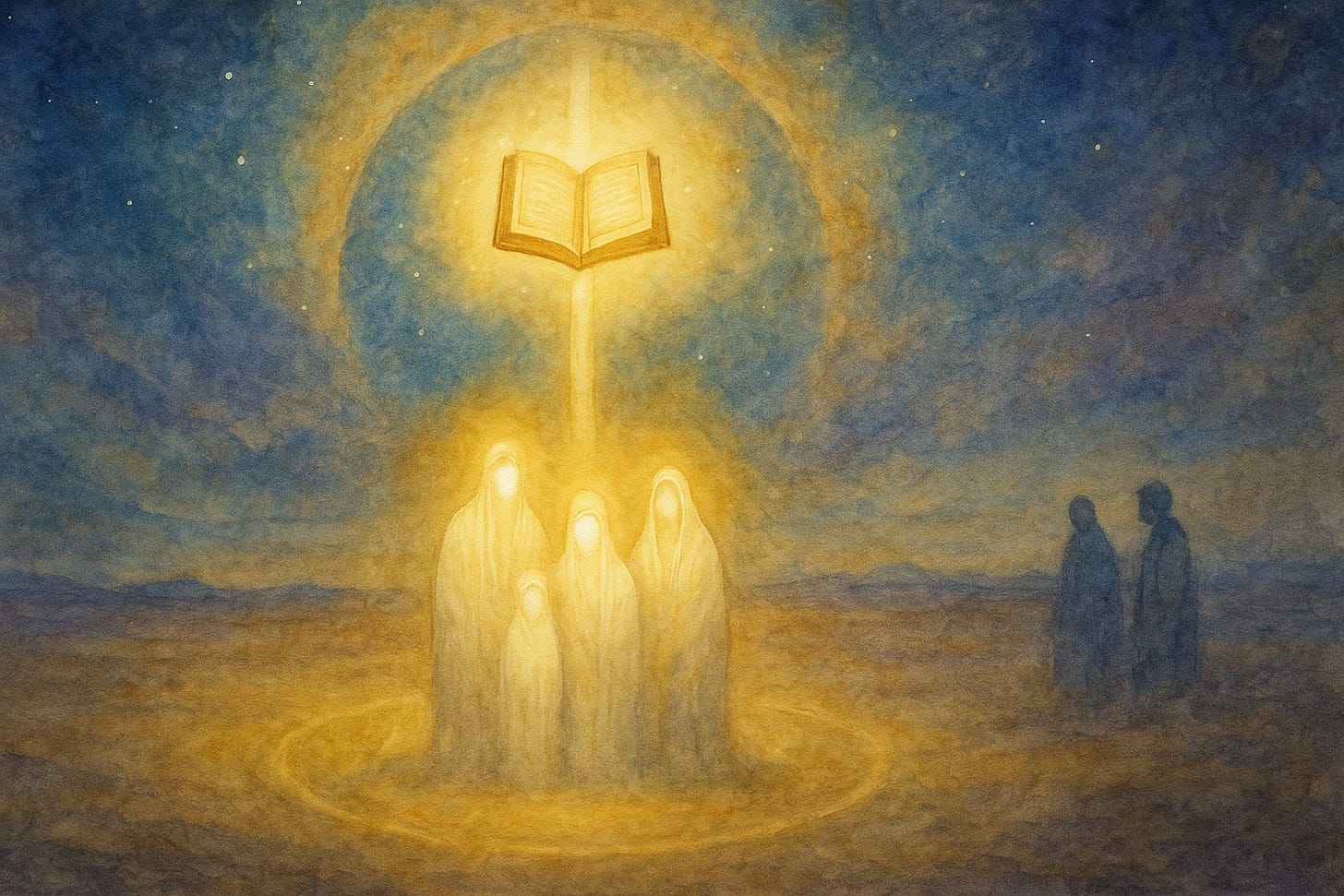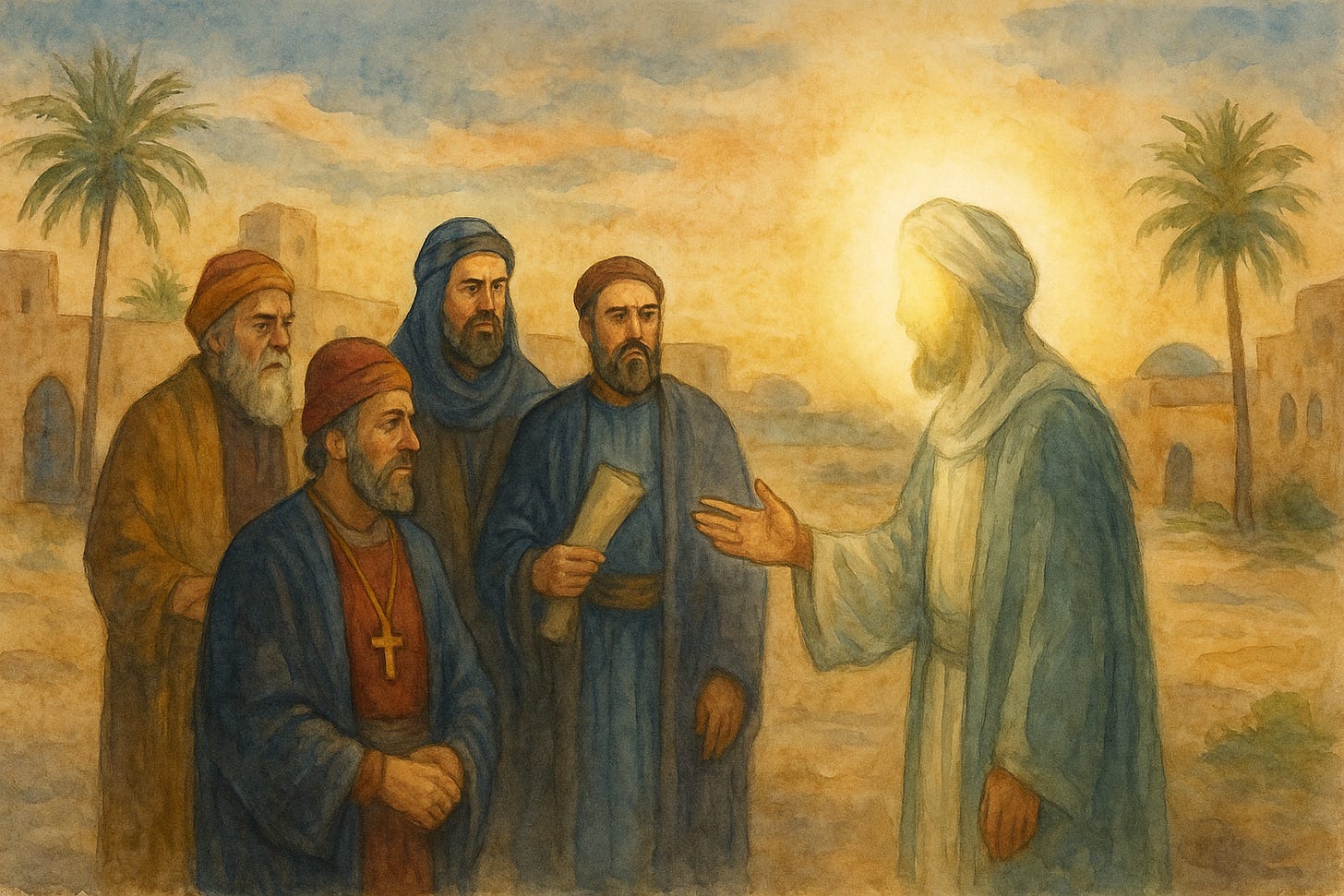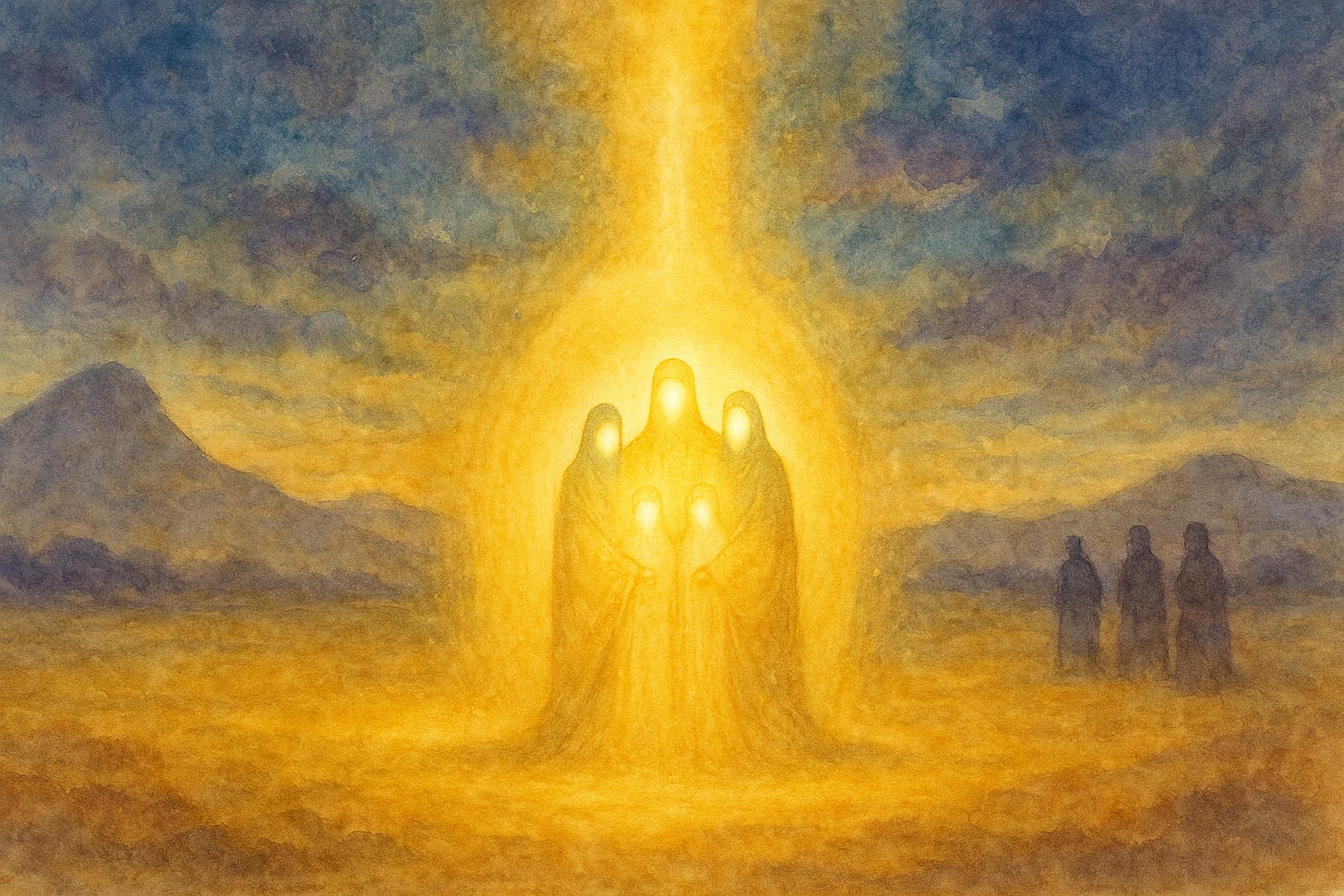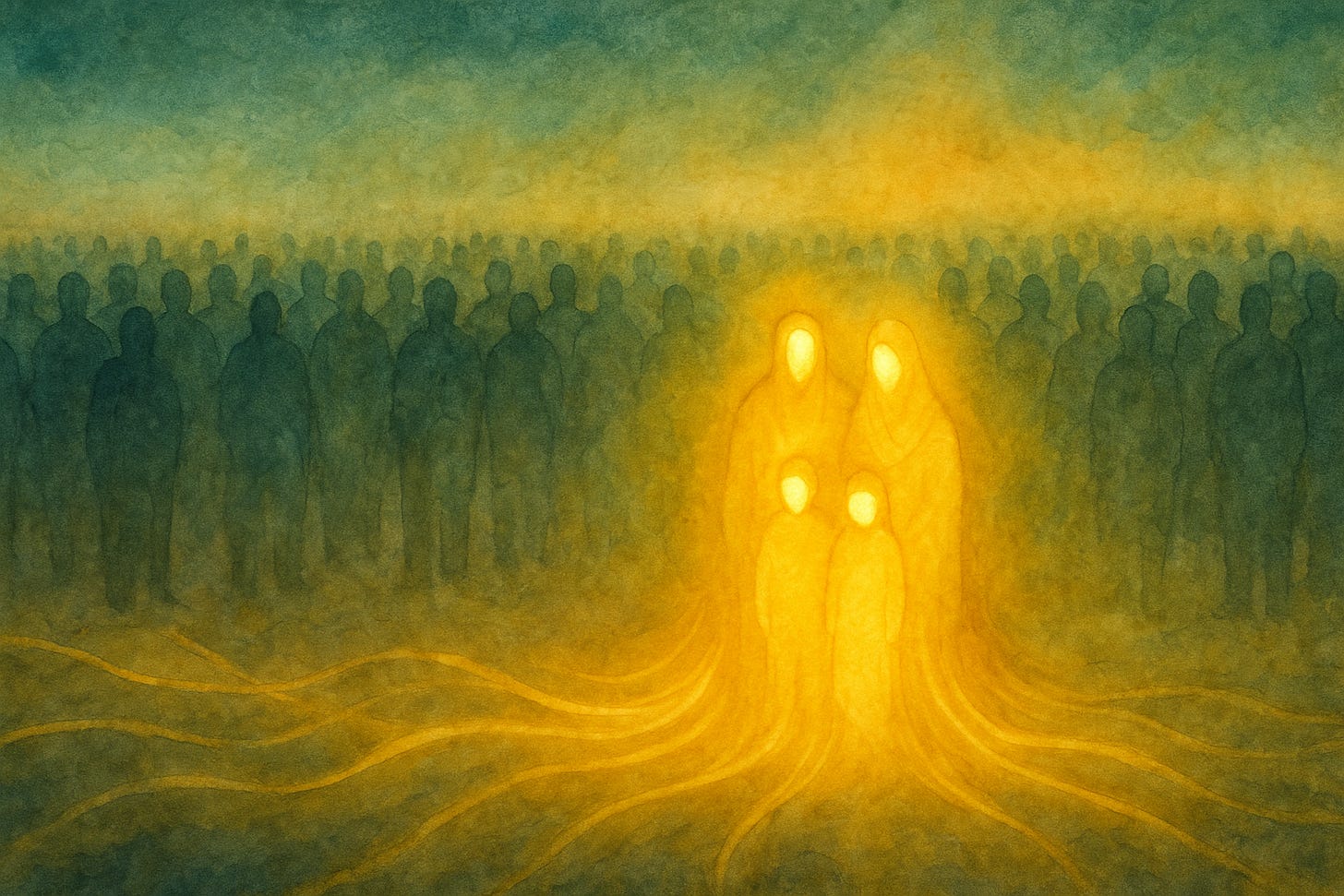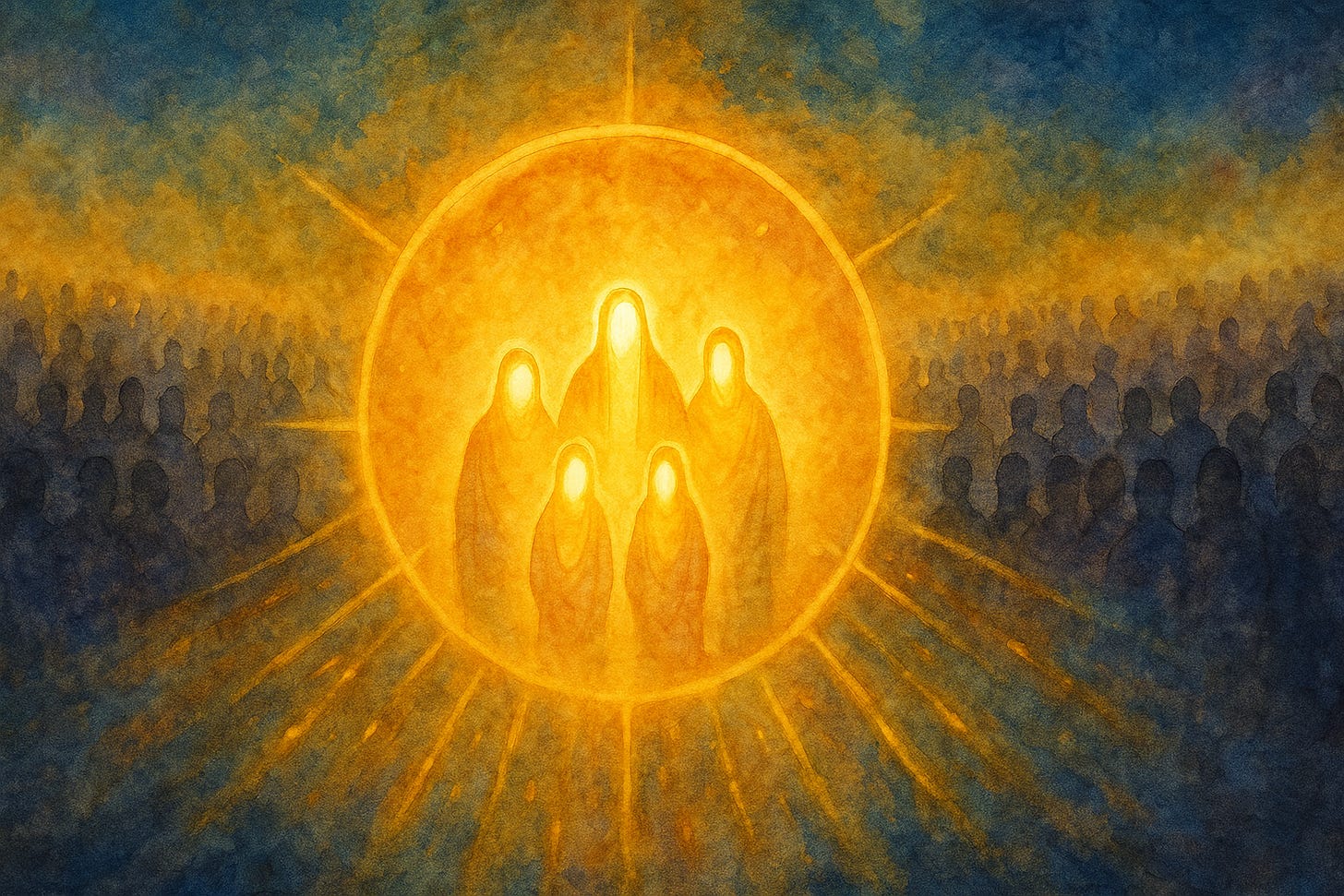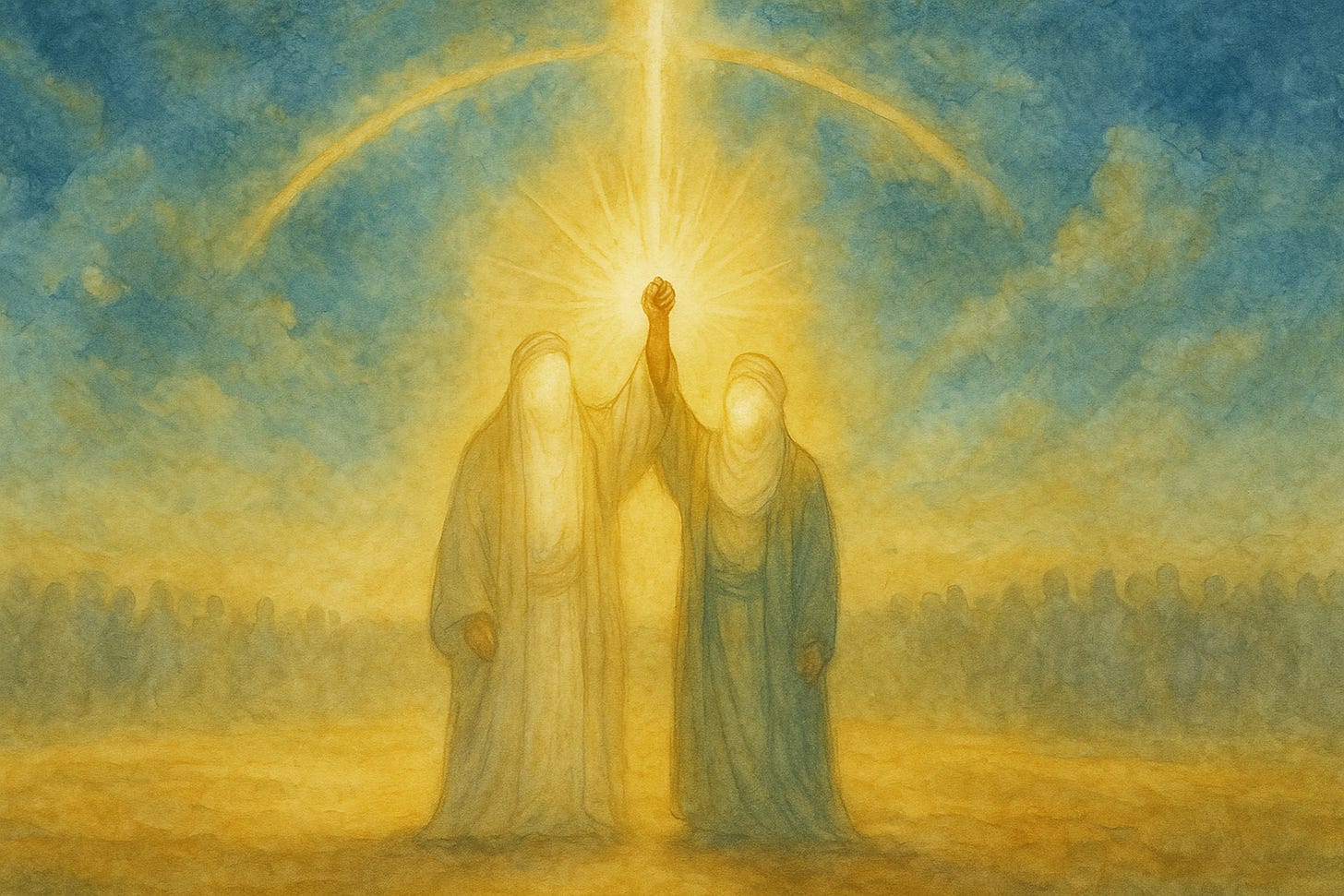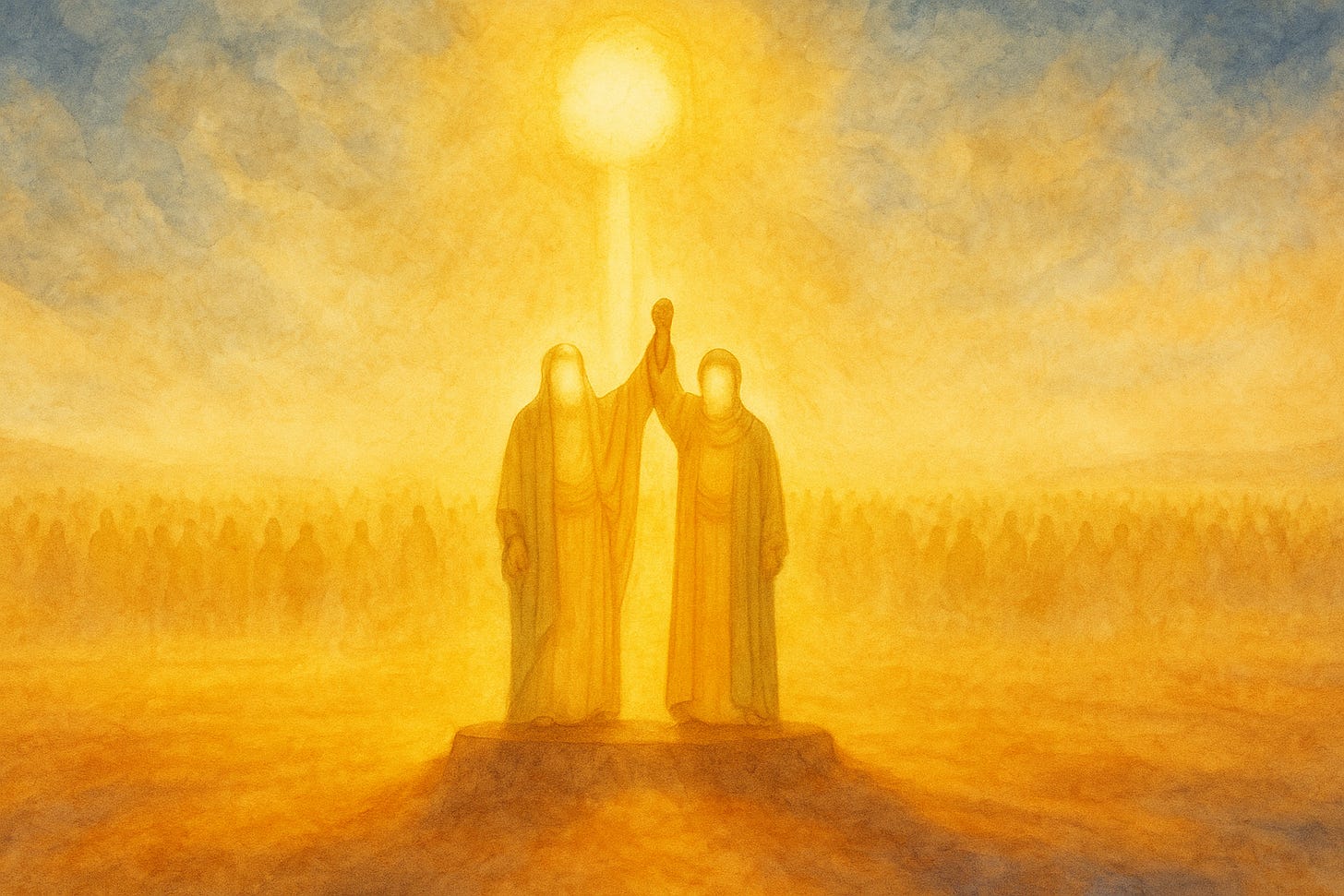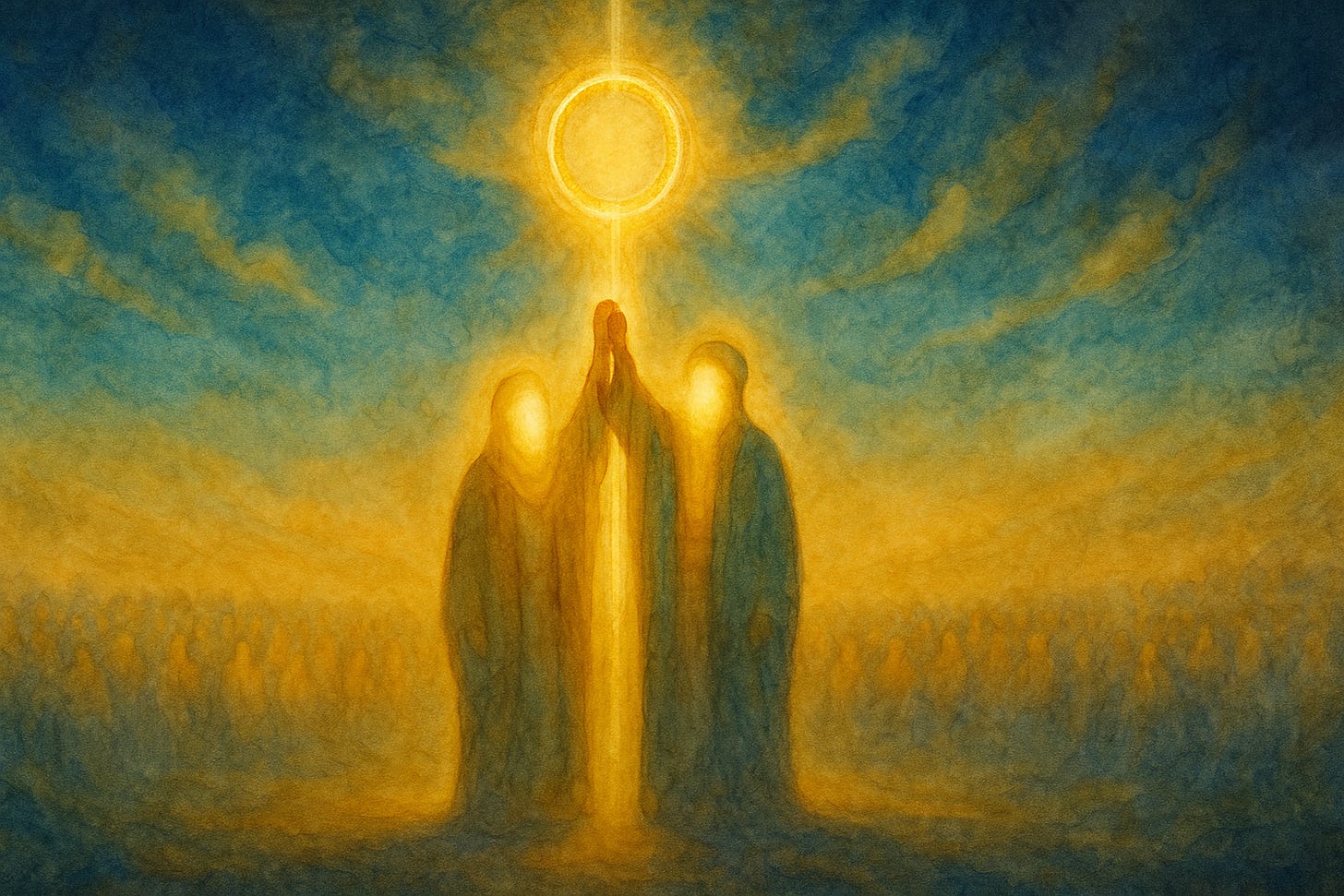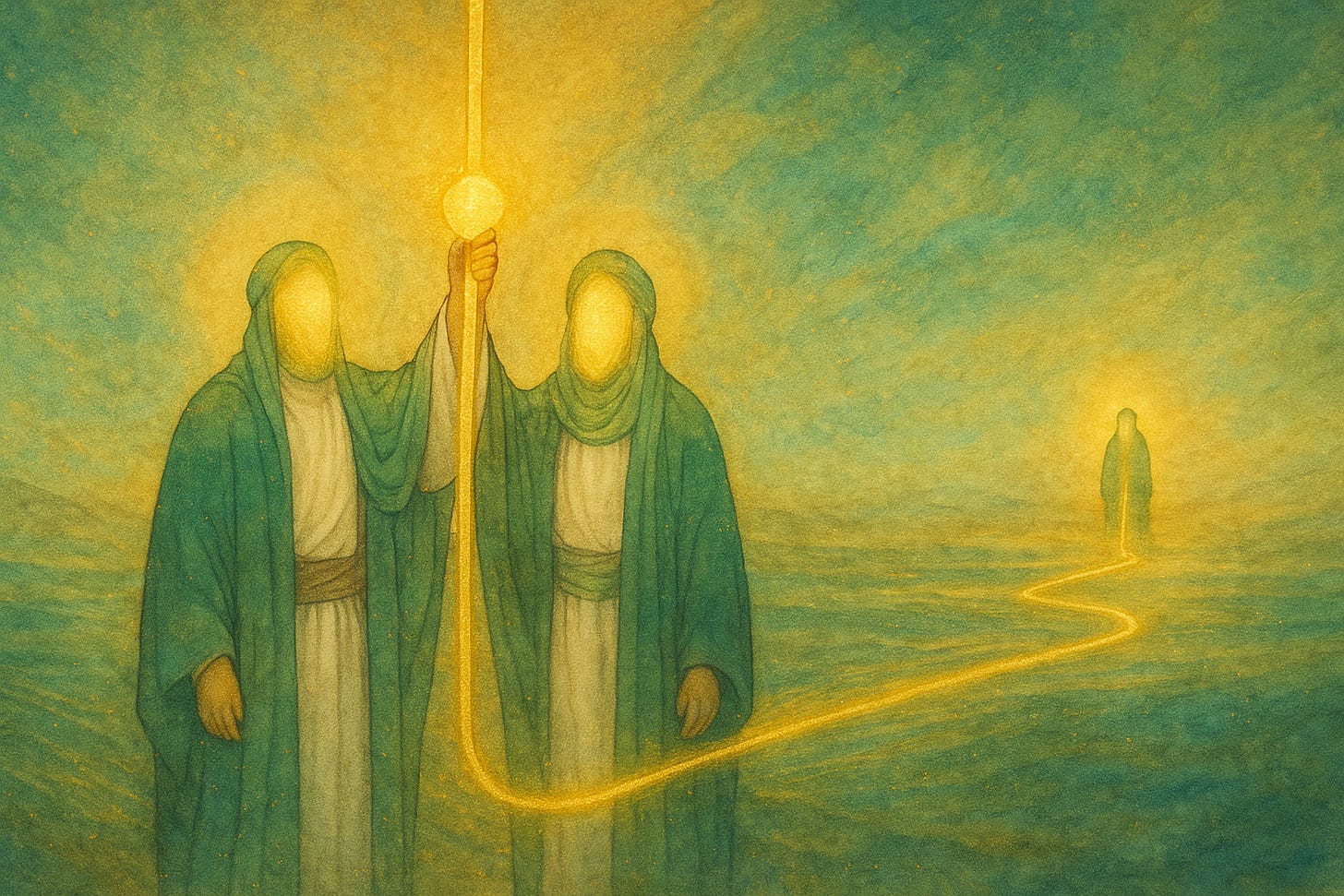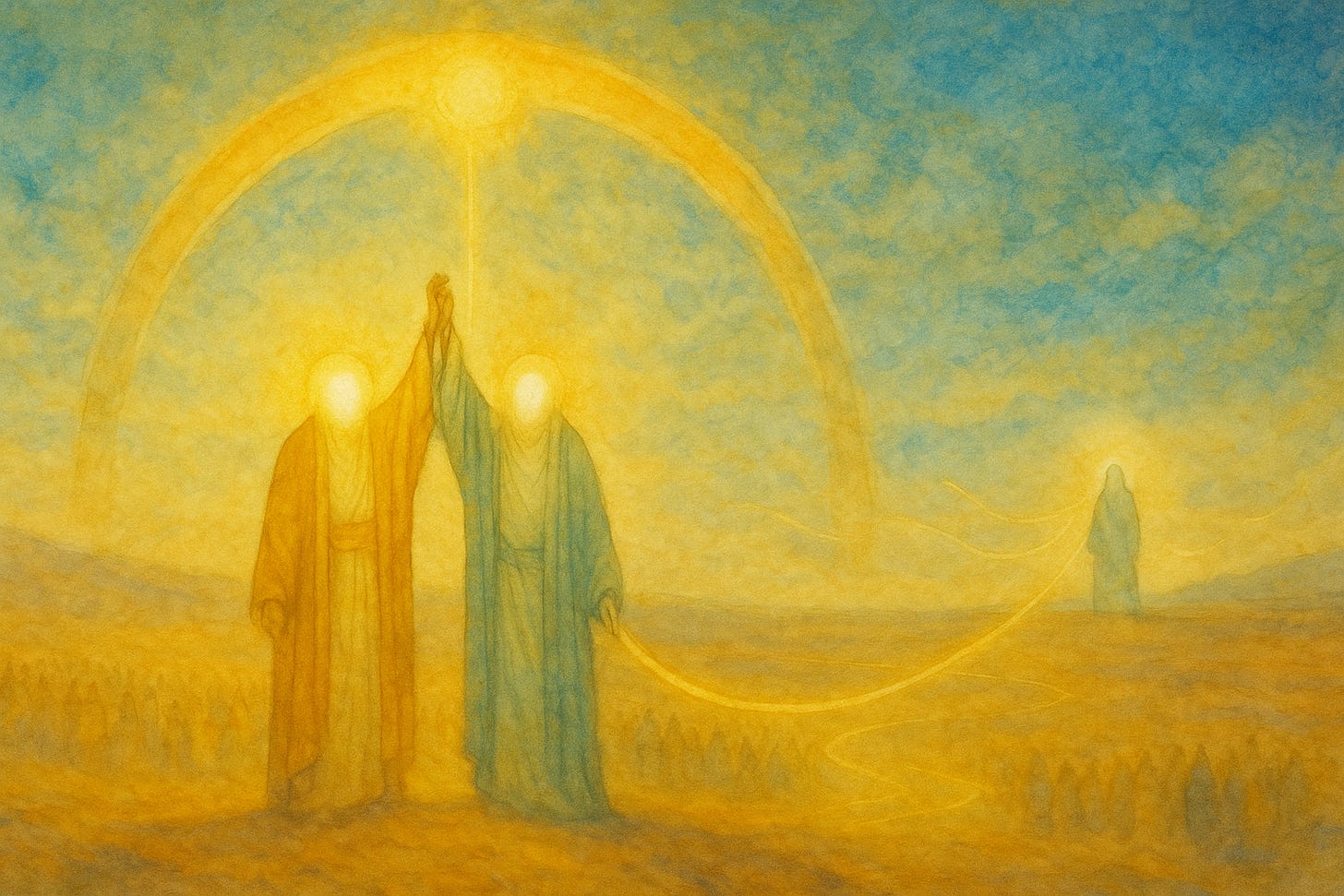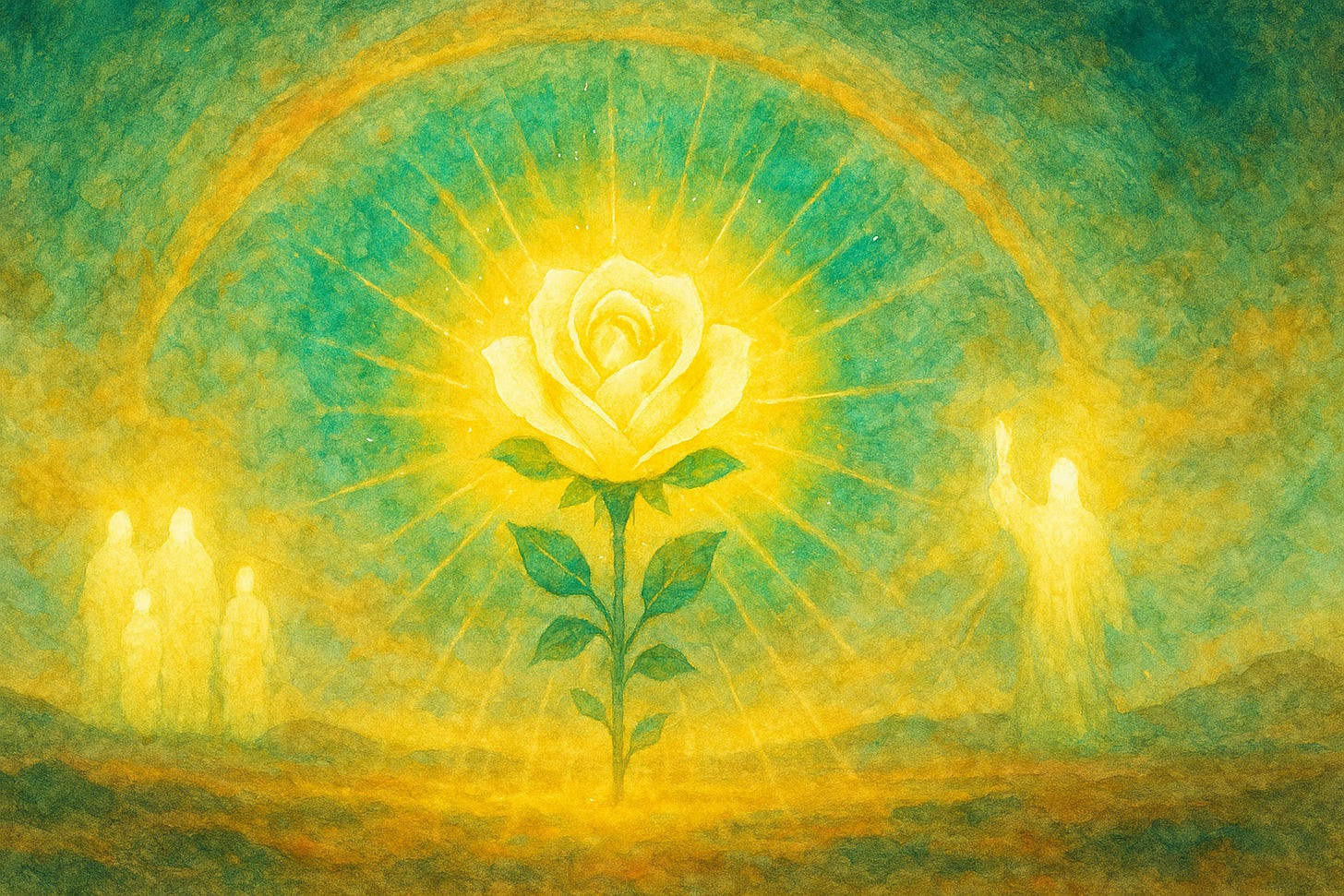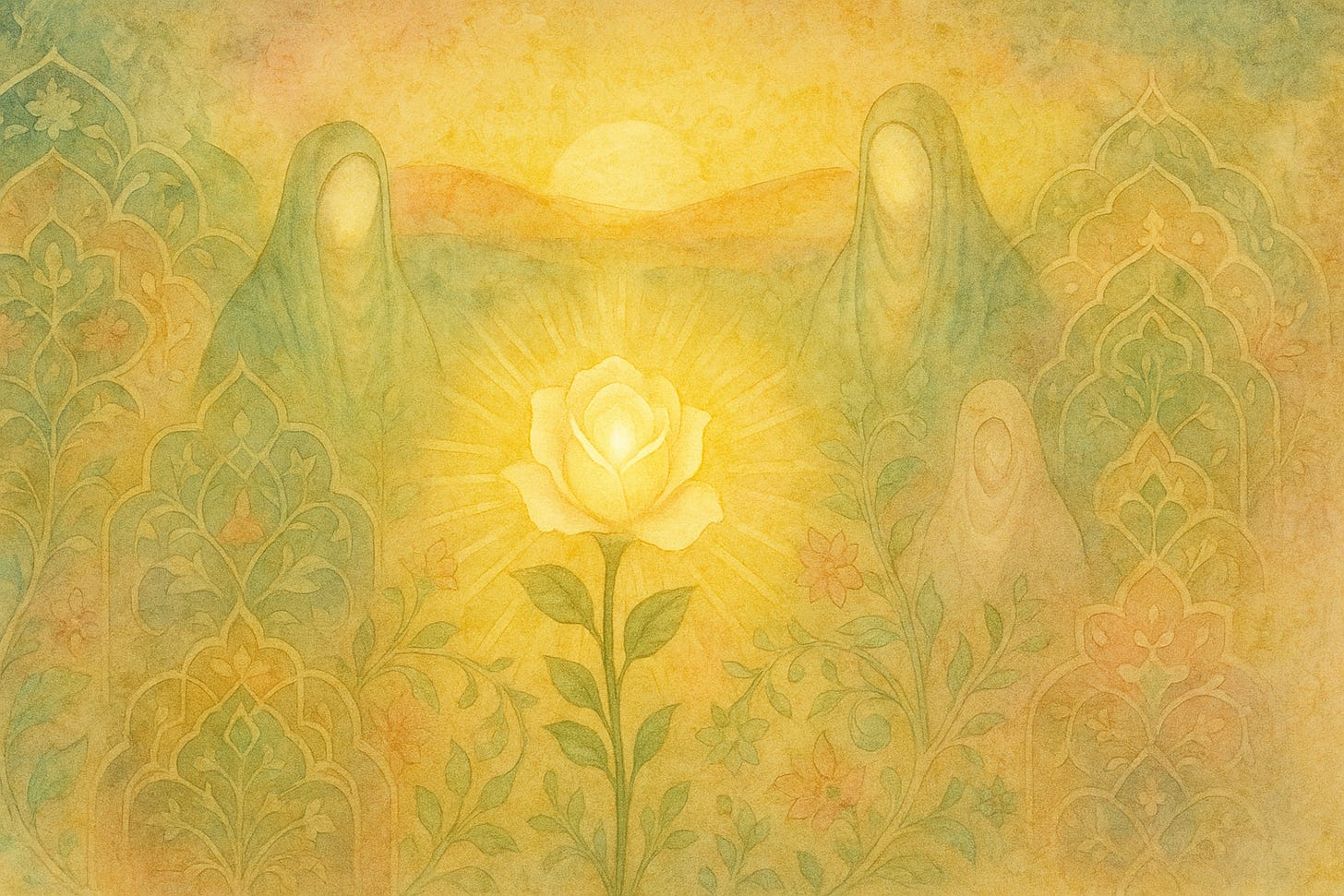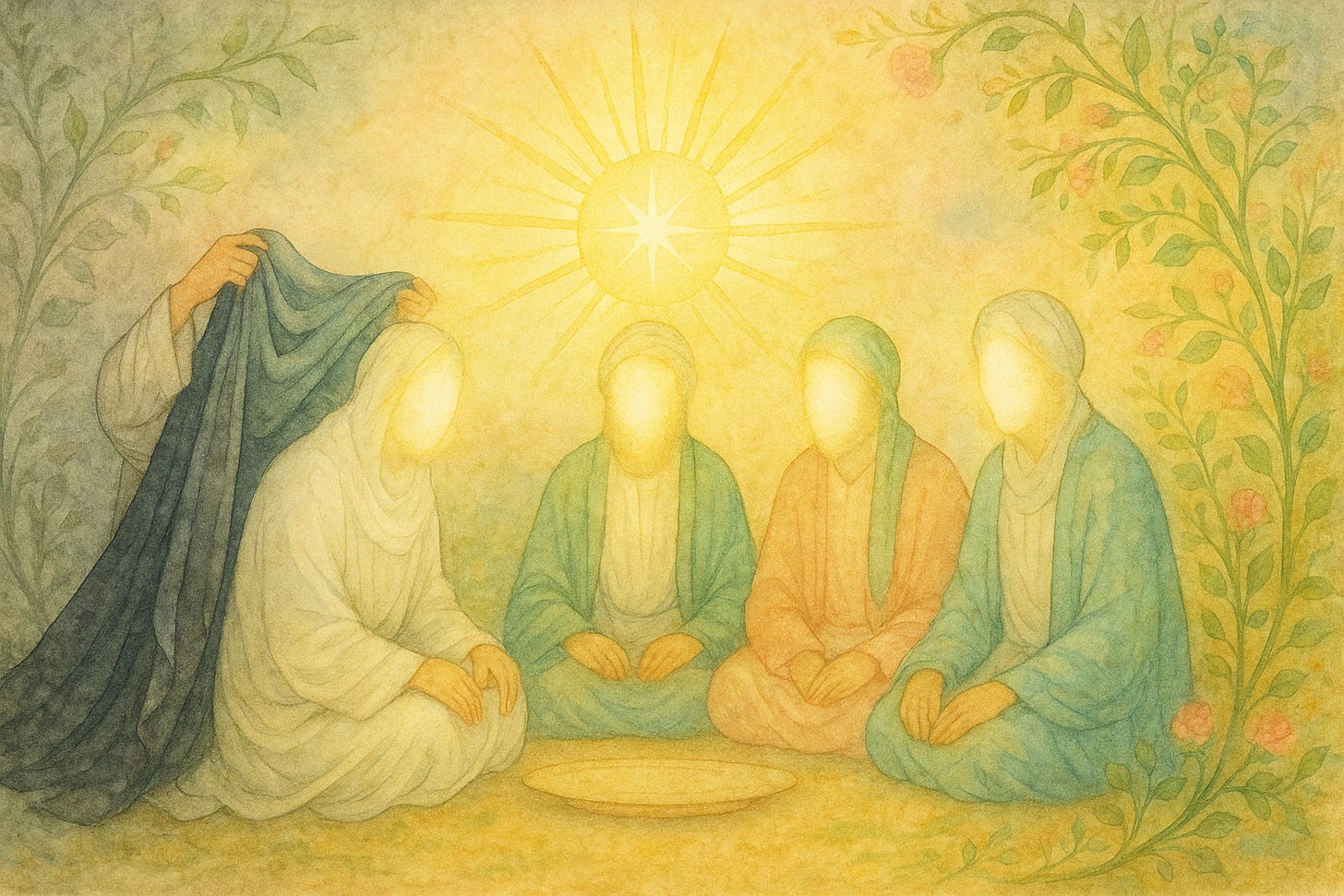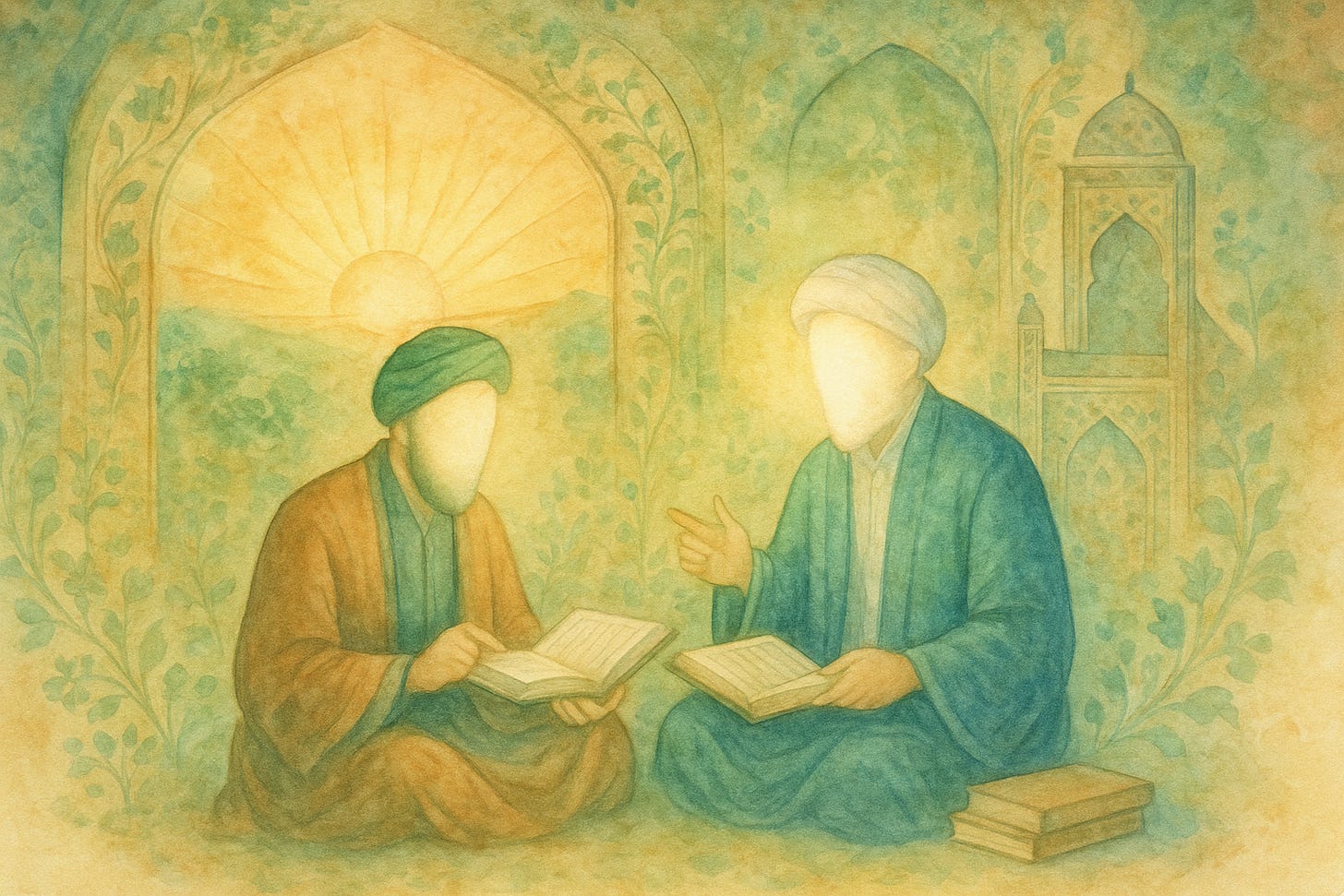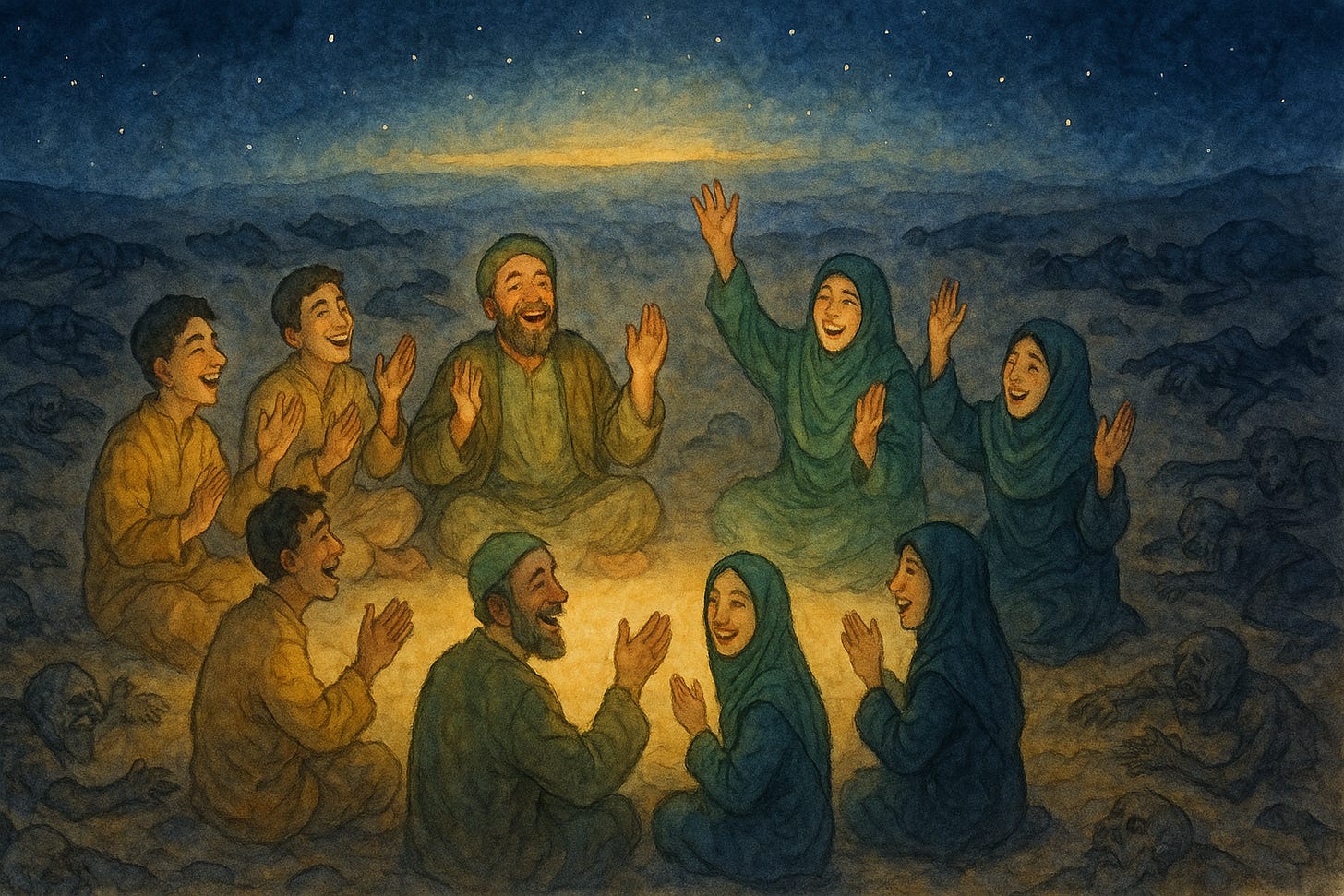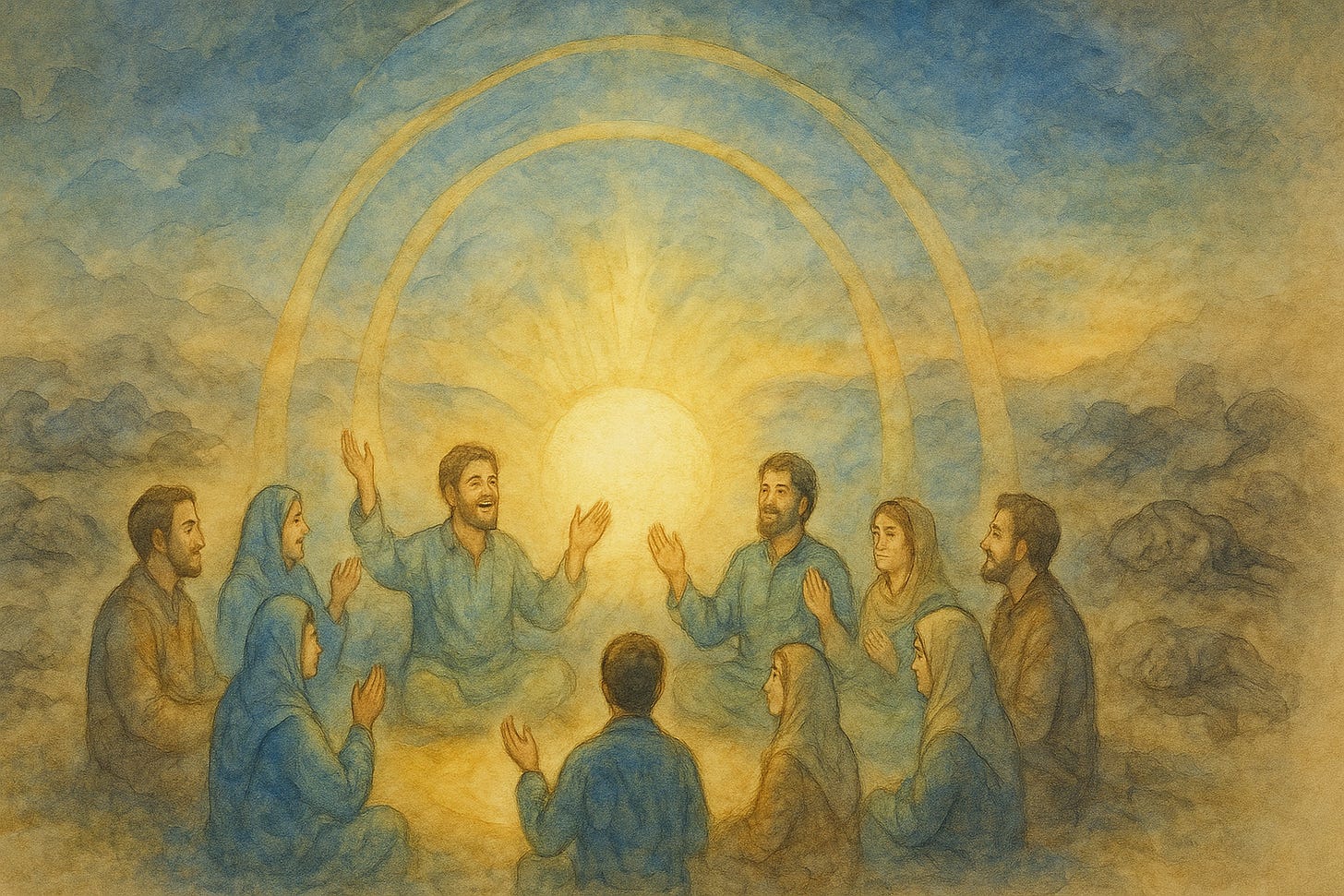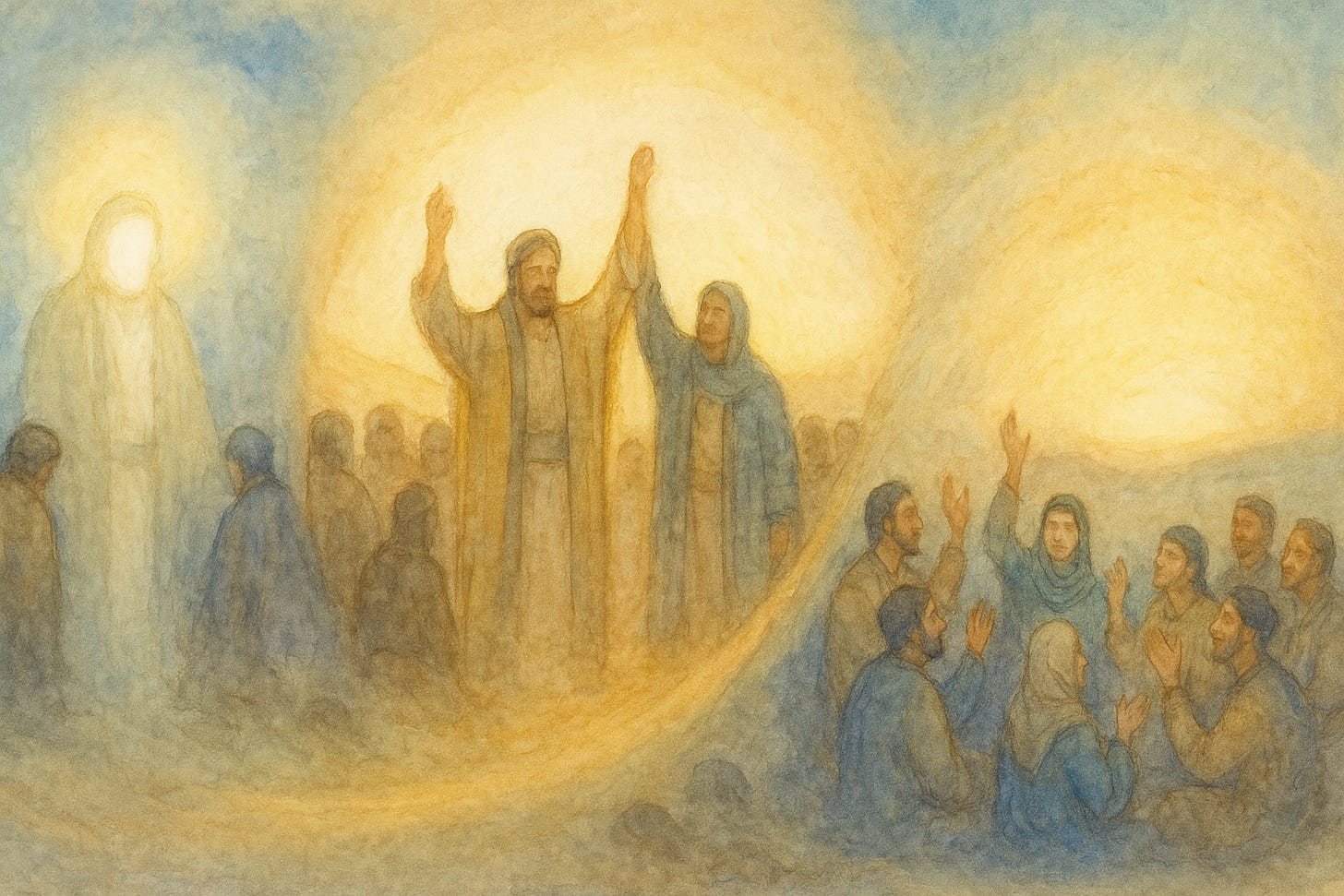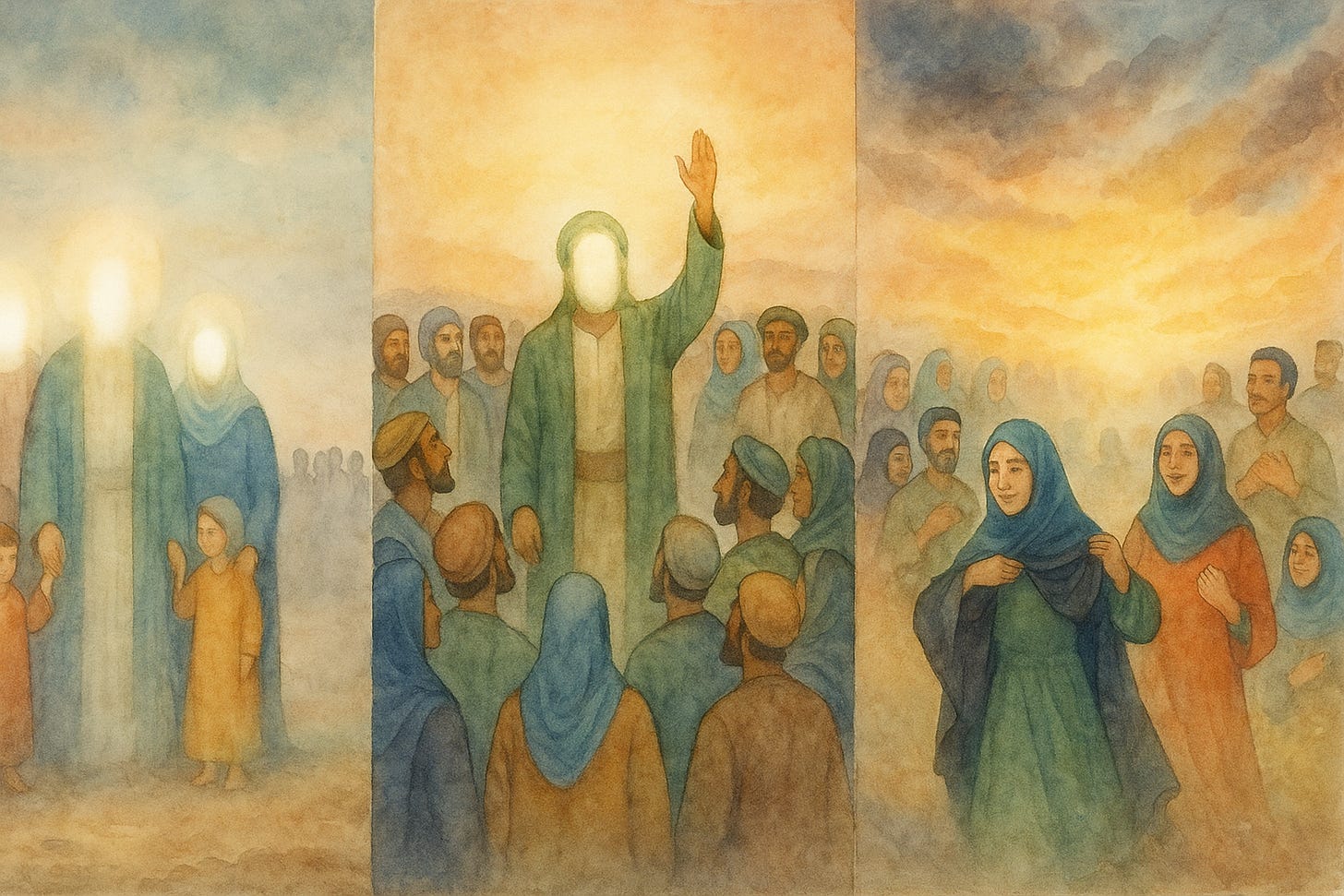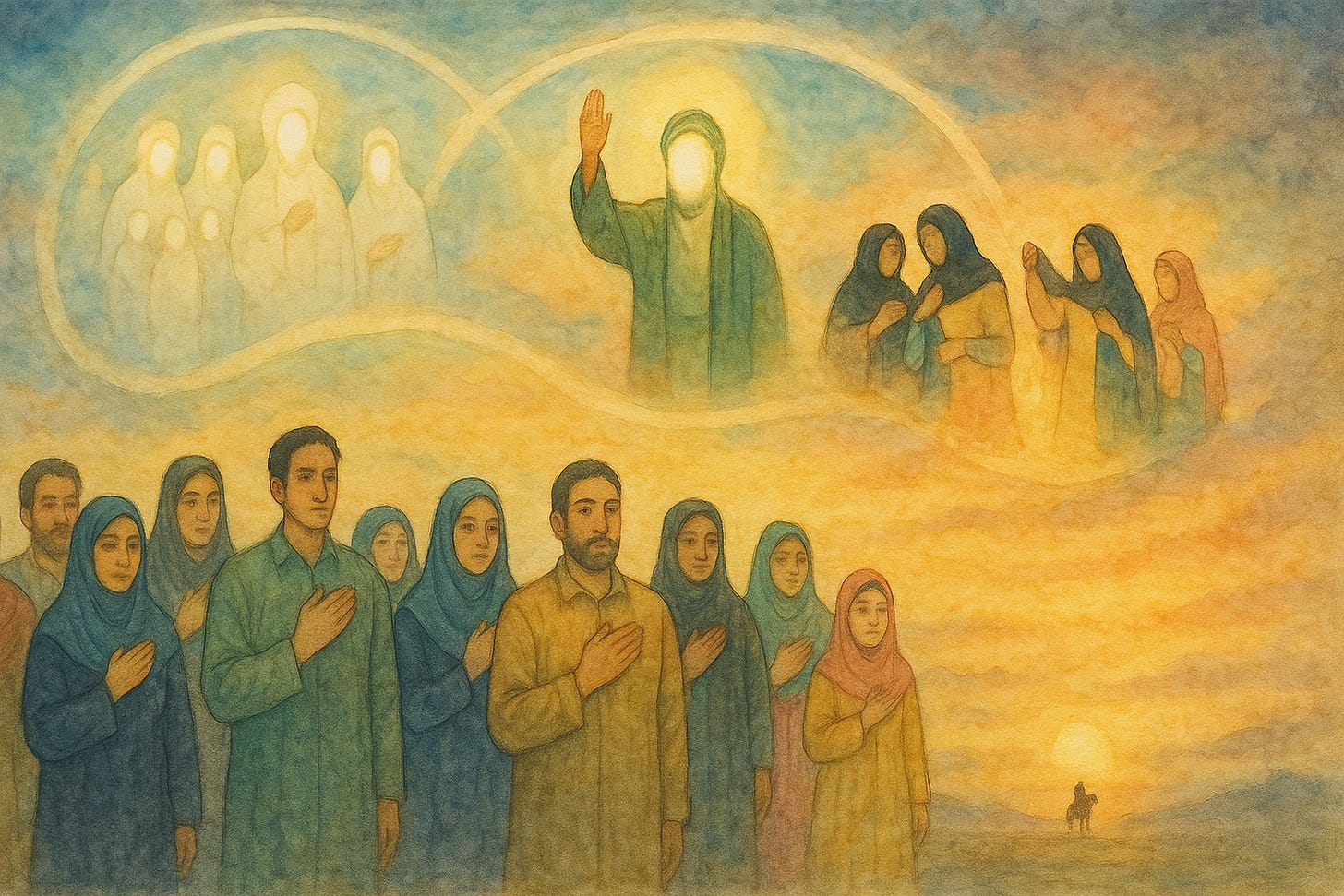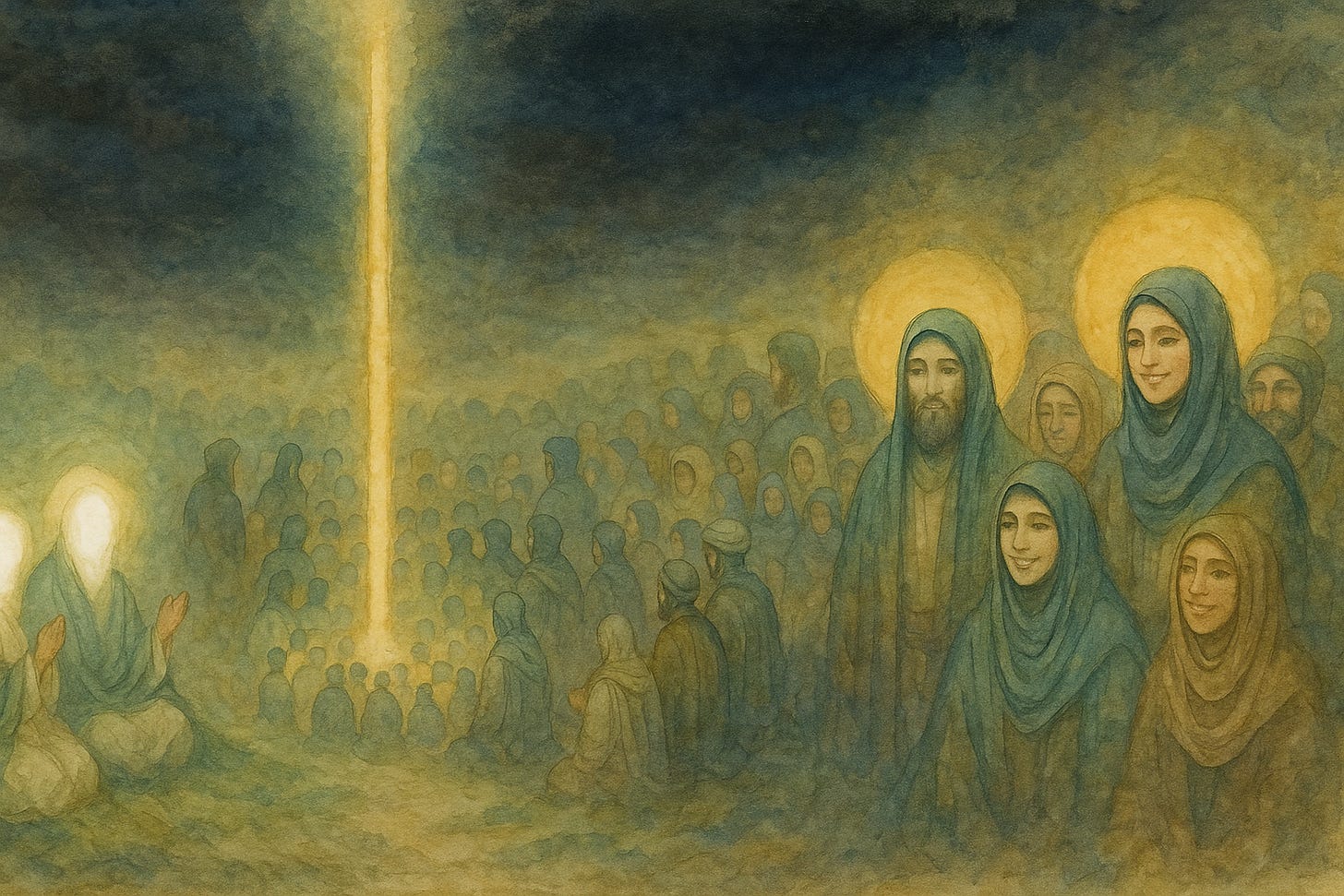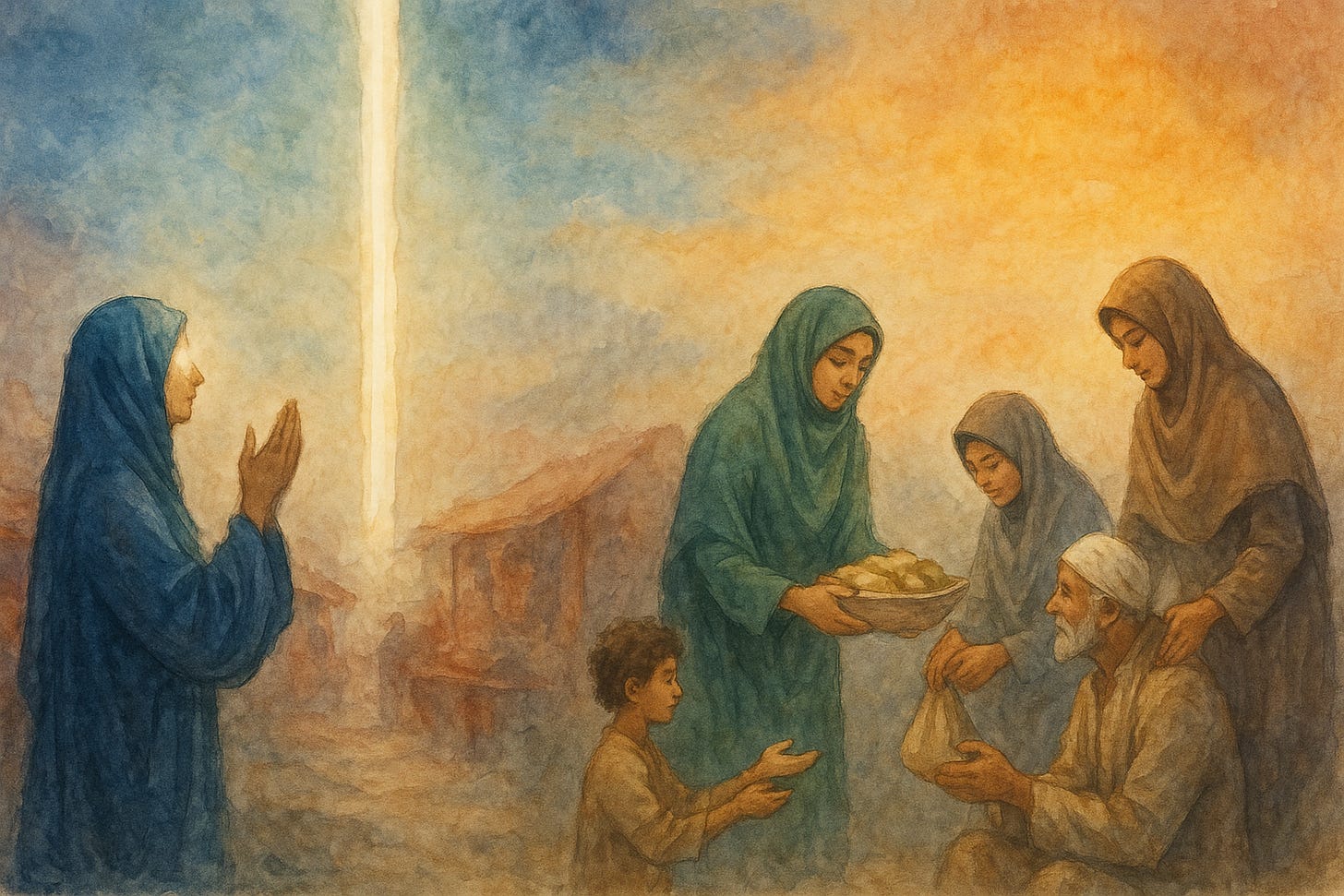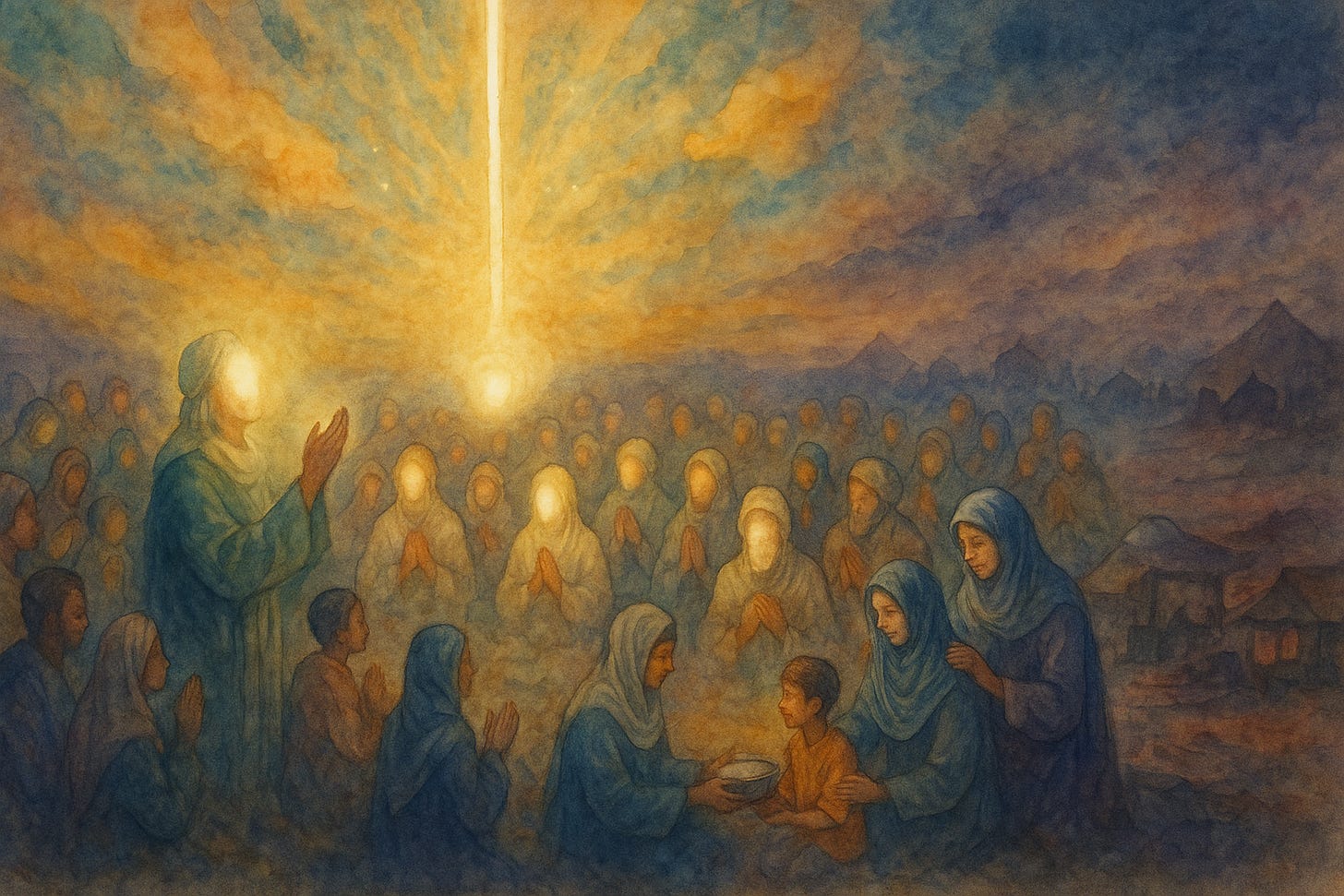[13] The Art of Supplication - The Sacred Windows: The Role of Time - Part 2: The Yearly Rhythm of Mercy - Part 2: The Days of Wilayah
A series of discussions based on the book Uddat al-Dai wa Najah as-Saee - The Provision of the Supplicant, and the Triumph of the Seeker by Ibn Fahd al-Hilli on the subject of Supplication and Prayer.
In His Name, the Most High
This is the thirteenth part of our series, The Art of Supplication, an ongoing exploration into the sacred relationship between the supplicant, the supplication, and the Divine.
The insights within this series are cumulative, and the nature of our discussion requires that each part build upon foundations laid in the ones that came before.
To prevent any misunderstanding and to fully benefit from the depth of this subject, it is essential that you engage with the previous parts in order before continuing with this one.
The previous parts in this series can be found here:
Video of the Majlis (Sermon/Lecture)
This write up is a companion to the video majlis (sermon/lecture) found below:
Audio of the Majlis (Sermon/Lecture)
This write up is a companion to the video majlis (sermon/lecture) found below:
Recap
The Yearly Rhythm of Mercy – Part 1
In our last session, we continued our journey into the art of supplication by exploring the sacred windows of time.
Having previously reflected on the daily and weekly rhythms—from the stillness of the pre-dawn hours to the abundant mercy of Friday—we turned our focus to the grander tapestry of the yearly calendar.
We established that time in the Divine view is not a flat, empty vessel, but a living map woven with cosmic opportunities and thresholds of mercy.
We began charting this map by exploring five foundational stations:
The Month of Ramadhan and the Nights of Qadr: We identified this as the axis of the sacred year. It's not merely a month of abstinence but a school for the soul, centred on the Quran's descent and culminating in the Nights of Ordainment, when destinies are renewed in the presence of the living Imam.
The 15th of Sha’baan: We understood this as a bridge-night, uniting two horizons. For all, it is a night of immense forgiveness, conditional on purging the heart of rancour. And for us, it is the night of hope, celebrating the birth of the Awaited Saviour, Imam al-Mahdi.
The First of Rajab: We framed this as the threshold of mercy. It is the formal invitation and gateway into the sacred trilogy of Rajab, Sha’baan, and Ramadhan. Its first night is a foundational moment for repentance and renewal.
Mab’ath (27th of Rajab): We reflected on this as the dawn of Prophethood. It marks the turning point in history when the first verses of revelation descended, and the Prophet Muhammad was commissioned with his universal mission to perfect noble character.
Dahw al-Ardh (25th of Dhul Qadah): Finally, we uncovered the significance of this cosmic anniversary—the day the earth was spread from beneath the Ka’bah, establishing the physical stage upon which all sacred history would unfold.
Our central takeaway was that these moments are not simply dates to be commemorated, but living invitations from God. They are windows into eternity, where the veils thin and Divine grace descends, demanding our wakefulness, reflection, and supplication.
Tonight, we continue this ascent. Having explored the five foundational stations in our previous session, we now turn to the great Eids of Wilayah — Mubahela, Ghadir, and Zahra — days of covenant, testimony, and joyful renewal.
In our next gathering, God willing, we will move to the station of Arafah, the day of recognition and covenant, and then to the nights of loyalty inscribed in blood and tears: Ashura and Arbaeen.
In His most beautiful name, and with yearning to be able to benefit from these luminous days and weeks and months of the year, we continue …
The Yearly Rhythm of Mercy — Part 2: The Days of Wilayah
If our previous discussion mapped the yearly seasons of mercy, tonight we study the unshakeable axis around which they turn.
We explore the covenant of wilayah through three defining movements: its solemn proclamation, its living testimony, and its joyful renewal.
Prepare your hearts and minds as we stand in awe at the gathering for Mubahela, journey to the sun-scorched plains of Ghadir, and share in the sacred delight of Eid al-Zahra.
Mubahela — When Supplication Became a Living Testimony
In the divine method, spiritual truth is often demonstrated long before authority is formally declared. The unique and lofty station of the Prophet's household was revealed in just such a manner, in a pivotal event that transcended mere argument and laid its spiritual foundations bare for all to witness.
When intellectual debate with the learned Christian delegation of Najran reached its limit, God revealed a final, decisive method of arbitration: Mubahela.
This was not a clash of swords or arguments, but a summons for souls to stand as living testimony to the truth, demonstrating the unique station of the very household whose divine right to leadership would be a cornerstone of the faith.
The Divine Challenge
The Quran lays down a challenge that transcends mere rhetoric.
It calls for both sides to bring forth the people most precious to them, to stand before God, and to invoke His judgment upon whichever party was speaking falsehood.
فَمَنْ حَاجَّكَ فِيهِ مِن بَعْدِ مَا جَاءَكَ مِنَ الْعِلْمِ فَقُلْ تَعَالَوْا نَدْعُ أَبْنَاءَنَا وَأَبْنَاءكُمْ وَنِسَاءَنَا وَنِسَاءكُمْ وَأَنفُسَنَا وَأَنفُسَكُمْ ثُمَّ نَبْتَهِلْ فَنَجْعَل لَّعْنَتَ اللَّهِ عَلَى الْكَاذِبِينَ
Should anyone argue with you concerning him [Jesus], after the knowledge that has come to you, say, ‘Come! Let us call our sons and your sons, our women and your women, and ourselves and yourselves, then let us pray earnestly (nabtahil) and invoke God’s curse upon the liars.’
— Quran, Surah Aal-i-Imraan (the Chapter of the Family of Imraan) #3, Verse 61
The word nabtahil signifies a solemn, earnest supplication, a final appeal to the ultimate Judge.
This was not a casual debate; it was a spiritual summons where the price of falsehood was divine condemnation.
The Prophet’s response to this command would forever define who the people of his household truly were.
The Delegation from Najran
In the 10th year after the Hijra (circa 632 CE), a prominent delegation from the Christian community of Najran, a thriving city in Yemen, journeyed to Medina.
Their purpose was to engage in a theological debate with Prophet Muhammad concerning the nature of Jesus Christ.
The delegation was composed of their most esteemed leaders, including their Grand Bishop Abu Harithah, their chief administrator Al-Aqib, and their tribal chief Al-Sayyid.
After extensive discussions failed to resolve their doctrinal differences, the Prophet, guided by divine revelation, called them to a Mubahela—a solemn invocation where both parties would pray for God's judgment to fall upon whichever side was fabricating the truth.
The Embodiment of Truth
In answering this divine call, the Prophet of God (peace and blessings be upon him and his family) did not gather his powerful companions, his wisest elders, or his largest tribe.
He brought only the five purest souls, the Ahl al-Kisa (People of the Cloak).
Their presence was the ultimate argument, their purity the irrefutable proof.
This account of the Day of Mubahela is a well-established (mutawatir) tradition in Islamic literature, found in the most authoritative collections.
For instance, in narrations recorded by Muslim in his Sahih, Ahmad ibn Hanbal in his Musnad, and Al-Tabrisi in al-Ihtijaj, it is reported that:
خَرَجَ رَسُولُ اللَّهِ (ص) وَمَعَهُ أَمِيرُ الْمُؤْمِنِينَ وَفَاطِمَةُ وَالْحَسَنُ وَالْحُسَيْنُ (ع) فَقَالَ مُخَاطِبًا لِلنَّصَارَى: هَؤُلَاءِ أَبْنَاؤُنَا وَنِسَاؤُنَا وَأَنْفُسُنَا، فَهَلُمُّوا أَنْتُمْ أَيْضًا بِأَبْنَائِكُمْ وَنِسَائِكُمْ وَأَنْفُسِكُمْ
The Messenger of God came out, and with him were the Commander of the Faithful, Fatimah, Hasan, and Husayn (peace be upon them). Addressing the Christians, he said: 'These are our sons, our women, and ourselves. Now, you too bring your sons, your women, and yourselves.'
— Ibn Hanbal, Musnad, Volume 1, Page 185
— Muslim, Sahih, Book of Virtues of the Companions, Hadeeth 2404
— Al-Tabrisi, al-Ihtijaj, Volume 1, Page 81
In this single act, the Prophet provided a living exegesis of the verse.
“Our sons” (abna ana) were Imams Hasan and Husayn.
“Our women” (nisa ana) was Sayyedah Fatimah az-Zahra, the singular woman representing all women of his household.
“Ourselves” (anfus ana) was Imam Ali, whom God’s verse designated as the very “self” or “soul” of the Prophet.
Upon seeing these luminous faces, Abu Harithah, the Grand Bishop of Najran, famously warned his delegation:
إِنِّي لَأَرَى وُجُوهًا لَوْ سَأَلُوا اللَّهَ أَنْ يُزِيلَ جَبَلًا مِنْ مَكَانِهِ لَأَزَالَهُ، فَلَا تُبَاهِلُوهُمْ فَتُهْلَكُوا وَلَا يَبْقَى عَلَى وَجْهِ الْأَرْضِ نَصْرَانِيٌّ إِلَى يَوْمِ الْقِيَامَةِ.
Indeed, I see faces which, if they were to ask God to move a mountain from its place, He would indeed remove it. Do not engage in mutual imprecation (mubahela) with them, or you will perish and never will a single Christian remain upon the earth until the Day of Resurrection.
— Al-Hakim Al-Naysaburi, Al-Mustadrak, Volume 3, Pages 150-151
— Al-Tabari, Tarikh, Volume 3, Pages 208-209
— Al-Tabrisi, Ilam al-Wara’, Page 158
— Al-Hilli, Minhaj al-Karamah, Page 127
This encounter reveals that true supplication is not merely spoken words; it is a living stance, a public covenant where the purity of one's being becomes the ultimate testimony to truth.
The Principle of Mubahela in Our Lives
While the historical event of Mubahela is unique, its principles are timeless and offer profound guidance for us today.
First, it teaches us that truth is not contingent on numbers.
The Prophet came with only four people, yet their spiritual weight and conviction were more powerful than the entire delegation they faced.
In a world obsessed with popular opinion, social media metrics, and majority rule, Mubahela reminds us to stand for truth with unshakeable conviction, even if we find ourselves standing alone or in a small group.
Second, Mubahela highlights the family as a fortress of faith.
The Prophet brought his immediate, sanctified household as the standard-bearers of his message.
This underscores that the primary ground for cultivating, preserving, and defending the faith is a righteous family—one built on purity (taharah), love (mawaddah), and knowledge (ilm). A strong Muslim community is built from the cornerstone of strong, God-conscious households.
Finally, it reveals that our actions can be our most powerful supplication.
The most eloquent dua is a life lived with integrity.
When we embody the principles we preach—when we stand for justice, care for the oppressed, and exhibit noble character—our very existence becomes a testimony to the truth of our faith.
This living testimony is often more powerful than any verbal argument we could make.
The Covenant Clarified: Our Takeaways
Let us distill the lessons of this momentous day into clear, foundational truths that shape our faith.
The Ahl al-Bayt are the Divine Standard of Truth: Mubahela is an undeniable Quranic and Prophetic designation of Imam Ali, Sayyedah Fatimah az-Zahra, Imam Hasan, and Imam Husayn as the ultimate human embodiments of purity, truth, and nearness to God. They are not merely “respected family”; they are the very “sons,” “women,” and “self” of the Prophet by divine decree.
Supplication is an Act of Being: This event expands our understanding of dua beyond mere words. It demonstrates that our unwavering commitment to truth, our integrity, and the purity of our lives can themselves become a form of supplication—a living proof (hujjah) that calls down God's favour and judgment.
Conviction Outweighs Consensus: Victory at Mubahela was not won through debate or force but through the awesome spiritual presence of the Prophet and his family. It teaches a vital lesson: the sincere conviction of a few who are aligned with God is infinitely more powerful than the arguments of many who stand on falsehood.
Truth Demands a Willingness to Sacrifice: To answer the call of Mubahela is to put one's entire existence on the line, trusting completely in God as the ultimate arbiter. It calls us to live our faith with a level of courage that shows we are prepared to stand by the truth, no matter the worldly cost.
Ghadir — The Completion of Religion and the Axis of Faith
There are moments in sacred history when the trajectory of revelation itself is at stake.
The Day of Ghadir is not merely a significant event; it is the climax of the prophetic mission, a moment so critical that God Himself tied the very completion of faith to its proclamation.
The Quran frames this day with a command of unparalleled gravity and a declaration of ultimate finality.
The Divine Imperative
Imagine the scene: the Prophet (peace and blessings be upon him and his family), returning from his final pilgrimage with tens of thousands of companions.
Before the caravans disperse, he is stopped by a divine command, one so weighty that it carries the burden of his entire 23-year mission.
The verse revealed was not a suggestion, but an ultimatum.
يَا أَيُّهَا الرَّسُولُ بَلِّغْ مَا أُنزِلَ إِلَيْكَ مِن رَّبِّكَ ۖ وَإِن لَّمْ تَفْعَلْ فَمَا بَلَّغْتَ رِسَالَتَهُ ۚ وَاللَّهُ يَعْصِمُكَ مِنَ النَّاسِ
O Apostle! Communicate that which has been sent down to you from your Lord, and if you do not, you will not have communicated His message, and God shall protect you from the people.
— Quran, Surah al-Maidah (the Chapter of the Table Spread) #5, Verse 67
Reflect on this condition: “if you do not, you will not have communicated His message.”
This means that all the prayers, all the fasts, all the battles, and all the verses revealed over two decades would be rendered incomplete without this final, essential message.
The message was so crucial that God promised divine protection for its delivery.
This was the proclamation of wilayah—Divine Guardianship.
Under the blazing sun at the pool of Khumm, the Prophet of God ascended a makeshift pulpit, took the hand of Ali ibn Abi Talib (peace be upon him), raised it high for all to see, and made the declaration that would echo through eternity:
مَنْ كُنْتُ مَوْلَاهُ فَهَٰذَا عَلِيٌّ مَوْلَاهُ
Whomever I am his master (mawla), this Ali is his master (mawla).
— Ibn Majah, Sunan, Volume 1, Page 43 (Hadeeth of Ghadir)
— Al-Hakim al-Naysabouri, Al-Mustadrak Ala Al-Sahihayn, Volume 3, Page 110-134
— Ibn Hanbal, Musnad, Volume 4, Pages 281, 371 and also Volume 5, Pages 347, 370
— Al-Kulayni, Al-Kafi, Volume 1, Kitab al-Hujjah (the Book of the Proofs), Kitab al-Nass Ala Amir al-Mu’mineen (Chapter on the Explicit Designation of the Commander of the Faithful), Page 420-422, Hadeeth 80-81
— Al-Saduq, Al-Amali, Majlis 58, Hadeeth 5
— Al-Amini, Al-Ghadir fil-Kitab wal-Sunnah wal-Adab, Volume 1, Pages 14-158
— Al-Tusi, Al-Amali, Majalis 18 and 20
The word mawla here is not passive; it denotes mastery, authority, guardianship, and the right to command.
The Prophet was establishing a clear, unbroken chain of divine leadership.
The Seal of Perfection
Immediately following this historic proclamation, the seal of Divine approval descended, confirming the significance of what had just occurred.
The final piece of the faith was now in place, and God declared the structure complete:
الْيَوْمَ أَكْمَلْتُ لَكُمْ دِينَكُمْ وَأَتْمَمْتُ عَلَيْكُمْ نِعْمَتِي وَرَضِيتُ لَكُمُ الْإِسْلَامَ دِينًا
Today I have perfected your religion for you, completed My blessing upon you, and approved Islam as your religion.
— Quran, Surah al-Maidah (the Chapter of the Table Spread) #5, Verse 3
This verse reveals three profound truths.
The religion was now perfected (akmaltu), because the mechanism for its continued guidance was now public.
The blessing was now completed (atmamtu), because the mercy of Prophethood was now secured by the mercy of Imamate.
And Islam was now approved (radhitu), because it now possessed the leadership principle that would protect it from deviation.
Ghadir is not a footnote in history.
It is the day wilayah became the axis of Islam, the condition of our supplications, and the very spine of our worship.
The Living Covenant of Ghadir
The lessons of Ghadir are not confined to the past; they are a living covenant that addresses the core challenges of our time.
In a world adrift in confusion, fractured by countless interpretations and ideologies, Ghadir establishes the principle of a divinely-appointed axis of truth.
Wilayah is the “strong rope of God” that the Quran commands us to hold onto, preventing the community from scattering into sectarianism and error. It is the anchor of certainty in an ocean of doubt.
Furthermore, living the covenant of Ghadir today means understanding that allegiance is an active, not a passive, reality.
It is not enough to feel love in our hearts; we are called to align our character, our ethics, our social conduct, and our stand against injustice with the teachings of the Ahl al-Bayt.
To accept the Wilayah of Imam Ali is to accept the school he represents.
Most importantly, the rope of Ghadir extends unbroken through time.
The covenant made with Imam Ali is the same covenant that connects us today to the Imam of our Age, Imam al-Mahdi (may our souls be his ransom, and may God hasten his return).
To celebrate Ghadir is to look to the horizon and renew our pledge to the living inheritor of that authority, preparing ourselves to be worthy servants of his government of justice.
The Covenant Clarified: Our Takeaways
Let us, therefore, carry these truths forward with clarity and conviction, renewing our understanding of this foundational day.
Wilayah is the Perfection of Faith: Ghadir teaches that Islam, without the clear line of divinely appointed leadership, is incomplete. Wilayah is not an additional pillar but the keystone that locks the entire arch of religion in place, ensuring its integrity and longevity.
The Proclamation was a Divine Imperative: The appointment of Imam Ali was not a personal choice or a political suggestion by the Prophet. It was a direct and solemn command from God, upon which the very validity and completion of the entire prophetic mission rested.
Allegiance is an Active Trust: The declaration at Ghadir established a covenant (ahd). This covenant demands more than historical acknowledgement; it requires our active loyalty, our obedience in matters of religion, and a sincere effort to emulate the Ahl al-Bayt in every aspect of our lives.
The Covenant is Alive Today: The guardianship of Ghadir is a continuous, living principle, not a past event. Its authority today rests with the Imam of our Time, Imam al-Mahdi. To celebrate Ghadir is to reaffirm our direct allegiance to him. In his absence, this covenant is not suspended; it cascades into the practical custodianship of religion under Wali al-Faqih—a training in obedience, discipline, and unity that prepares hearts for the Imam’s just government. This entire system is a divine preparation for believers—a crucial “dry-run” to cultivate the obedience, discipline, and unity required to be true supporters of the Imam upon his promised return.
Eid al-Zahra — The Joyful Renewal of the Covenant
The covenant of Wilayah is built upon two foundational events: the irrefutable testimony of Mubahela and the solemn proclamation of Ghadir.
From this foundation, the 9th of Rabi al-Awwal—known as Eid al-Zahra—emerges as the covenant's joyful renewal and affirmation.
It is the day the community of believers expresses its gratitude for the continuity of divine guidance and celebrates the victory of truth over falsehood.
This is not a joy born of frivolity, but a profound spiritual state rooted in the Quran’s call to rejoice in God's greatest blessings.
The Quranic Principle of Joy
The Quran teaches that believers should actively express joy in response to divine mercy and bounty, distinguishing it from the fleeting pleasures of the material world. God commands His Prophet:
قُلْ بِفَضْلِ اللَّهِ وَبِرَحْمَتِهِ فَبِذَٰلِكَ فَلْيَفْرَحُوا هُوَ خَيْرٌ مِّمَّا يَجْمَعُونَ
Say, ‘In the bounty of God and in His mercy—in that let them rejoice.’ It is better than all that they accumulate.
— Quran, Surah Yunus (the Chapter of (Prophet) Jonah) #10, Verse 58
The Imams of the Ahl al-Bayt have taught that the greatest “bounty” (fadhl) and “mercy” (rahmah) of God is the wilayah of the Prophet and his progeny.
Therefore, to rejoice in this blessing is a Quranic imperative.
Eid al-Zahra is the manifest expression of this joy.
The Tradition of the Ahl al-Bayt
The significance of the 9th of Rabi al-Awwal is enshrined in the traditions of the Ahl al-Bayt.
It is narrated that this day marks a turning point, a lifting of sorrows, and the beginning of the Imamate of our 12th Imam.
The narrations describe it as a great Eid, a day of celebration and gratitude.
In a lengthy tradition, as reported in Shia sources, the Prophet (peace and blessings be upon him and his family) is reported to have described the virtues of this day, calling it a day of divine rest and a great festival.
رُوِيَ عَنْ حُذَيْفَةَ بْنِ الْيَمَانِ فِي حَدِيثٍ طَوِيلٍ أَنَّهُ قَالَ: دَخَلْتُ عَلَى سَيِّدِي رَسُولِ اللَّهِ صلى الله عليه وآله فِي الْيَوْمِ التَّاسِعِ مِنْ شَهْرِ رَبِيعٍ الْأَوَّلِ، فَرَأَيْتُهُ وَ أَمِيرَ الْمُؤْمِنِينَ وَ وَلَدَيْهِ الْحَسَنَ وَ الْحُسَيْنَ عليهم السلام يَأْكُلُونَ، وَ النَّبِيُّ صلى الله عليه وآله يَتَبَسَّمُ فِي وُجُوهِهِمْ وَ يَقُولُ لِوَلَدَيْهِ الْحَسَنِ وَ الْحُسَيْنِ: كُلَا، هَنِيئاً لَكُمَا بِبَرَكَةِ هَذَا الْيَوْمِ، فَإِنَّهُ الْيَوْمُ الَّذِي يُهْلِكُ اللَّهُ فِيهِ عَدُوَّهُ وَ عَدُوَّ جَدِّكُمَا، وَ يَسْتَجِيبُ فِيهِ دُعَاءَ أُمِّكُمَا.
فَقُلْتُ: يَا رَسُولَ اللَّهِ، فَهَلْ لِهَذَا الْيَوْمِ فَضْلٌ عَلَى سَائِرِ الْأَيَّامِ حَتَّى صِرْتَ تُعَظِّمُهُ هَكَذَا؟
فَقَالَ النَّبِيُّ صَلَّى اللَّهُ عَلَيْهِ وَ آلِهِ: يَا حُذَيْفَةُ، لَا تَسْأَلَنِي عَنْ فَضْلِ هَذَا الْيَوْمِ... هُوَ الْيَوْمُ الَّذِي أَقَرَّ اللَّهُ بِهِ عَيْنَ آلِ الرَّسُولِ... وَ أَوْحَى رَبِّي جَلَّ ذِكْرُهُ إِلَيَّ أَنْ أَجْعَلَ ذَلِكَ الْيَوْمَ، وَ هُوَ الْيَوْمُ التَّاسِعُ مِنْ شَهْرِ رَبِيعٍ الْأَوَّلِ، عِيداً لِي وَ لِأَهْلِ بَيْتِي وَ لِشِيعَتِهِمْ.
It is narrated from Hudhayfah ibn al-Yaman in a lengthy tradition that he said: I entered upon my master, the Messenger of God (peace be upon him and his family), on the ninth day of the month of Rabi' al-Awwal. I saw him with the Commander of the Faithful (Amir al-Mu'minin) and his two sons, Hasan and Husayn (peace be upon them), and they were eating. The Prophet (peace be upon him and his family) was smiling into their faces and saying to his two sons, Hasan and Husayn: 'Eat! May it be a blessing for you both by the grace of this day, for it is the day on which God destroys His enemy and the enemy of your grandfather, and the day He answers the supplication of your mother.'
So I said: 'O Messenger of God, does this day have a virtue over all other days that you have come to venerate it in this manner?'
The Prophet (peace be upon him and his family) said: 'O Hudhayfah, do not ask me about the virtue of this day... It is the day on which God brought delight to the eyes of the family of the Messenger... And my Lord, may His remembrance be glorified, revealed to me to make that day, which is the ninth of the month of Rabi' al-Awwal, an Eid (festival) for me, for my household (Ahl al-Bayt), and for their followers (Shia).'
— Ibn Tawus, Iqbal al-Amal, Volume 3, Page 109-110
— Al-Bursi, Mashariq Anwar al-Yaqin, Page 117
— Al-Majlisi, Bihar al-Anwar, Volume 31, Pages 120-129
Allamah Majlisi also quotes the eleventh Imam, Imam Hasan al-Askari, regarding the day of Eid al-Zahra, the 9th of Rabi al-Awwal saying:
إِنَّ هَذَا الْيَوْمَ يَوْمٌ عَظِيمُ الشَّأْنِ، وَهُوَ يَوْمُ عِيدٍ كَبِيرٍ... وَهُوَ يَوْمُ نَزْعِ السَّوَادِ
Indeed, this day is a day of great status, and it is a day of a great Eid… and it is the day of the removal of black garments [of mourning].
— Al-Tusi, Misbah al-Mutahajjid, Page 737-739 (Section for 9th of Rabi al-Awwal)
— Ibn Tawus, Iqbal al-Amal, Volume 3, Pages 106-115 (Section for 9th of Rabi al-Awwal)
— Al-Majlisi, Bihar al-Anwar, Volume 95, Page 354
The joy of this day is fundamentally tied to the core principle of Tawalla (loving and aligning with the Ahl al-Bayt) and Tabarra (disassociating from their enemies). One cannot be complete without the other.
Imam Ali ibn Musa al-Ridha (peace be upon him) articulated this principle perfectly:
كَمَالُ الدِّينِ وَلَايَتُنَا وَالْبَرَاءَةُ مِنْ عَدُوِّنَا
The perfection of religion is our wilayah and the disavowal (al-bara’ah) of our enemy.
— Al-Saduq, Uyun Akhbar al-Ridha, Volume 2, Page 121
— Al-Saduq, Al-Tawheed, Page 403
— Al-Kulayni, Al-Kafi, Volume 2, Chapter of the Reality of the Imam, Page 18
— Al-Majlisi, Bihar al-Anwar, Volume 27, Page 58
Thus, the joy of Eid al-Zahra is the natural expression of a heart that has fully embraced both pillars of allegiance.
The Gnosis of the Scholars
Our great scholars have understood that this day is not merely about history, but about a living spiritual and political principle.
Imam Khomeini spoke of the necessity of keeping the lines between truth and falsehood clear, stating that the political dimension of Islam is inseparable from its spirituality:
اسلام، حکومت است با تمام شؤون آن و احکام آن. احکام اسلام قوانینی است که همه نیازهای بشر را از ولادت تا ممات دربرمیگیرد.
Islam is a government with its own affairs and rulings. Its rulings are comprehensive laws for human life from the day of birth to the day of death.
— Imam Khomeini, Hukumat-e Islami (Wilayat-e Faqih), Page 26
This highlights that celebrating the victory of divine governance (wilayah) over illegitimate authority is a core part of Islamic consciousness.
Ayatullah Bahjat, with his profound spiritual insight, often reminded believers that our connection to the Imam of our Time should be one of active joy and anticipation:
شادی مؤمن در فرج آل محمّد (ص) از بزرگترين قربات است.
The joy of a believer in the relief (faraj) of the family of Muhammad is among the greatest acts of drawing near [to God].
— Ayatullah Bahjat, Nasihatnameh-ye Ayatullah Bahjat, Page 247
Eid al-Zahra is the primary festival dedicated to this joy, nourishing our hope for the final, promised relief.
Joy as a Form of Resistance
The lessons of Eid al-Zahra are especially vital in our time. They teach us that joy, when properly oriented, is not an escape from reality but a powerful form of spiritual and political resistance.
First, it teaches us that joy is a principled statement.
In a world that often pressures believers into a state of perpetual apology or grief, to openly celebrate the victory of divine truth is an act of defiance. It declares that our ultimate happiness and sorrow are dictated by our allegiance to God and His chosen guides, not by the fleeting trends of worldly powers.
Second, this day reminds us that allegiance demands clarity.
True love and loyalty (tawalla) cannot coexist with ambiguity towards injustice. Eid al-Zahra forces a clarification: our commitment to the path of the Ahl al-Bayt requires a conscious and principled dissociation (tabarra) from the systems, figures, and ideologies of oppression that have opposed them throughout history and continue to do so today.
Finally, it teaches us about hope in the face of tyranny.
By celebrating the downfall of past tyrants, we reaffirm our unwavering certainty in the divine promise that all injustice is temporary and all tyranny is destined to fall.
This joy is not backward-looking; it is a forward-looking act that fuels our resilience and prepares our hearts for the eventual and certain return of the Imam of Justice.
The Covenant Clarified: Our Takeaways
Let us therefore solidify our understanding of this day of joy with these clear and essential truths.
Eid al-Zahra Completes the Covenant Cycle: It is the celebratory affirmation that logically follows the testimony (Mubahela) and the proclamation (Ghadir). It represents the emotional, spiritual, and communal commitment to the covenant of wilayah.
Joy is a Core Tenet of Faith: Our religion is one of complete human experience. It is not only a path of solemnity and remembrance but also one of profound joy in God's greatest blessings, chief among them being the gift of infallible guidance.
True Allegiance Involves Love and Dissociation: To fully align with the Ahl al-Bayt (tawalla) requires a conscious and clear disavowal (tabarra) of their enemies and the injustices they represent. These two principles are the inseparable wings of faith.
Celebration is a Renewal of Hope: Eid al-Zahra is an annual renewal of our pledge to the Imam of our Time. It is an expression of our joy in his past and future victories, and a powerful prayer for his hastened return to fill the world with equity and justice.
The Crescendo of Covenant: From Proclamation to the Awaited Dawn
In our journey through the sacred calendar, we have walked a path illuminated by three pivotal stations of wilayah.
Our path began with the spiritual proof of Mubahela, a silent and luminous testimony where the purest souls embodied truth itself.
From that spiritual foundation, we moved to the public proclamation at Ghadir, the sun-drenched plain where divine guardianship was established as the principle of Imamate for all time.
Finally, we arrived at Eid al-Zahra, the joyful affirmation and renewal of this sacred covenant.
But what is the ultimate purpose of this journey?
What is the collective lesson these days teach us about living a life of true allegiance today?
It is to understand that wilayah is not a historical grievance, but a living blueprint for character, unity, and hope.
The True Spirit of the Covenant
The very figures we celebrate in these Eids provide the most powerful antidote to the poison of sectarianism.
The Imam of Ghadir, Ali ibn Abi Talib himself, is our greatest teacher in unity.
After the Prophet's passing, despite his divine right being usurped, he prioritized the cohesion and preservation of the wider Muslim community above his own personal claim. His legendary patience (sabr) was not one of weakness, but of profound wisdom, demonstrating that the unity of the Ummah was a sacred trust.
To celebrate Ghadir while sowing discord is to misunderstand the man at its heart; Ali’s patience was not passivity but protection of the Ummah’s fragile unity in those first days.
To celebrate Ghadir while sowing discord is to fundamentally misunderstand the character of the man at its heart.
Similarly, the lesson of Mubahela was not in the loudness of the argument, but in the quiet purity of the Ahl al-Bayt.
Their character was their proof.
This teaches us that the most powerful way to bear witness to our faith is not by insulting others, but by embodying the sublime ethics of those we claim to follow.
This brings us to Eid al-Zahra, a day that has tragically been misrepresented by some and misunderstood by many.
Let us be unequivocally clear, dispelling the lies that have been attached to this day by the ignorant.
Eid al-Zahra has absolutely nothing to do with celebrating the death of historical figures like Umar ibn al-Khattab or the tyrant of Karbala, Umar ibn Sa'ad.
Such actions are born of ignorance and only serve to create strife.
The true significance of the 9th of Rabi' al-Awwal is profound and forward-looking.
It marks the end of the two-month period of intense mourning for the tragedy of Karbala (Muharram and Safar).
The hadeeth from Imam al-Askari, quoted earlier, mentions it as the day “the clothes of mourning are removed” for a beautiful reason: it signifies the formal beginning of the Imamate of our living Imam, al-Hujjah ibn al-Hasan, the Awaited Mahdi (may our souls be his ransom, and may God hasten his return).
We remove the black of mourning not to close the book of Karbala, but to reopen it as resolve—turning grief into girded hope for the living Imam.
It is a divinely ordained transition from sorrow to hope.
We cease to mourn the martyrdom of the past Imam to joyfully pledge our allegiance to the present and future Imam.
It is the dawn that follows the long, dark night of grief, turning our hearts towards the promise of ultimate justice.
A Call to a Higher Wilayah
Therefore, to reduce this day of hope into a festival of sectarian strife is a grave betrayal of its spirit.
Causing division within the wider Muslim community does nothing to hasten the return of Imam Mahdi; it actively harms the cause of Islam by presenting a distorted and ugly image of our faith.
The Imam will not return to bless our divisions; he will return to unite humanity under the banner of justice.
The truest celebration of these Eids of Wilayah—Mubahela, Ghadir, and Zahra—is to build our resolve for his return. It is to move closer to him by embodying his values. It is a day for renewing our covenant through acts of kindness, compassion, mercy, and love. It is a day to become more honourable, to serve our communities, and to be a source of pride for the Imam, not shame.
Let this be the crescendo of our covenant: that we internalize the purity of the family of Mubahela, the unity of Imam Ali, and the forward-looking hope of Eid al-Zahra.
Let us renew our pledge not with words of division, but with deeds of cohesion.
Let us strive to become the servants of whom our Awaited Master would be proud, so that we may not only pray for his return but actively hasten the dawn of his government of justice and love.
Conclusion
The Rope, the Witness, the Joy — and the Path Ahead
Mubahela showed that supplication becomes proof when purity stands before God; Ghadir taught us that allegiance is the spine of worship; and Eid al-Zahra trained our hearts to rejoice in guidance and renew hope.
These are not three commemorations on a calendar — they are three movements of one covenant: the witness, the rope, the joy.
If the witness of Mubahela refines us, the rope of Ghadir gathers us, and the joy of Zahra strengthens us, then what comes next is the trial of loyalty in the fire.
The covenant we renew in light, we will be asked to keep in night.
In our next gathering, God willing, we will move to the station of Arafah — the day of recognition and covenant — and then to the nights of loyalty inscribed in blood and tears: Ashura and Arbaeen.
These are not days of proclamation or celebration, but of surrender, remembrance, and resistance.
Until then, let us leave tonight with a simple discipline: tie every supplication to allegiance, every allegiance to character, and every joy to service.
The witness is living; the rope is given; the joy is commanded. May we be worthy of all three.
Practical Pledge
So let us leave tonight not only with remembrance, but with resolve.
Each morning and each evening, renew the rope. After fajr and after maghrib, name your Imam, ask his Lord to hasten his relief, and align one deed that day to his cause.
When the festivals of wilayah arrive, do not let them pass like decorations in a shop window: give in charity, feed a family, visit a patient, honour an elder.
Let your dua stand on its feet: refuse the markets of blood, redirect your spending, and clarify truth where it is muddied.
This is the testimony of Mubahela, the pledge of Ghadir, and the joy of Zahra — made alive in our actions.
Whispers Beneath the Throne
Covenant in the Light, Loyalty in the Night
In Your Name, O Lord of the Covenant and the Witness
O God, send Your boundless blessings upon Muhammad,
the Seal of Prophets,
upon Ali, the Commander of the Faithful,
upon Sayyedah Fatimah az-Zahra, the radiant Lady of Light,
upon the Imams from her pure progeny,
and upon the Proof of Your mercy — al-Mahdi, son of Hasan —
may our souls be his ransom and may You hasten his return.O You who unveiled the truth at Mubahela,
who completed the blessing at Ghadir,
and who taught hearts to rejoice on the Day of Zahra.O God,
You tied our religion with a knot that does not come undone —
the wilayah of Muhammad and the family of Muhammad.
Make our tongues faithful to that rope,
our hands obedient to that rope,
our steps steady upon that rope.O Lord,
You showed us that supplication is more than speech:
it is a life that stands with the truthful.
Place us among those whose faces are a prayer,
whose deeds are a testimony,
whose silence is remembrance.O Joy-Giver,
teach us to rejoice as You commanded:“In the bounty of God and His mercy — let them rejoice;
it is better than what they amass”
—Quran, Surah Yunus (the Chapter of (Prophet) Jonah) #10 Verse 58Make our happiness a banner of guidance,
our festivals a covenant renewed,
our laughter a shield against despair.O Lord of Husayn and his companions,
prepare us for the nights ahead:
for the thirst of Karbala,
for the tears of Zaynab,
for the whisper of Sajjad.
Let our remembrance become courage,
our mourning become mercy,
our loyalty become service.O Lord of Justice,
bear witness that we will not be silent before tyranny.
We pledge to clarify and to resist — with our words, our wealth, and our ways —
to boycott and divest from those who profit from blood,
to stand against genocide and every crime that desecrates the sacred life You forbade:“Do not slay the soul which God has made inviolable”
— Quran, Surah al-Isra (the Chapter of the Night Journey) #17 Verse 33,“Do not kill your children”
— Quran, Surah al-Isra (the Chapter of the Night Journey) #17 Verse 31,and
“whoever kills a soul…it is as if he has slain all mankind”
— Quran, Surah al-Maidah (the Chapter of the Table Spread) #5, Verse 32.Make us a people who enjoin right and forbid wrong,
whose courage is mercy and whose firmness is truth.O Most Kind, Most Near,
teach us honour to the elders who raised us,
and tenderness for the unborn whom You entrust to us.
Put on our tongues the prayer You taught:“My Lord, have mercy on them,
as they nurtured me when I was small”
— Quran, Surah al-Isra (the Chapter of the Night Journey) #17 Verse 24.Let our homes be sanctuaries of life,
our communities havens for the weak,
our hands a shelter for those the world calls “inconvenient.”O Lord of Muhammad and his family,
as Imam al-Sajjad (peace be upon him) taught in his whispered prayers,
we ask You to shelter and bless:
the scholars who guard religion with truth,
the youth who carry the banner of purity,
the children whose innocence is a trust,
the women and the men who walk the path of faith,
the elders whose lives are lamps of experience,
and every believer, near and far.O Proof of God, son of Hasan — our living Imam —
to you we offer the rope of our allegiance,
the witness of our deeds,
and the joy of our hope.
Accept our pledge,
hasten your relief,
and make us among your helpers and martyrs —
those who are not ashamed when the banners are raised.O Most Near,
pour into our poverty the wealth of Your mercy.
Forgive what we fear to remember,
heal what we cannot repair,
and write us among those whom You proved by Your witness,
gathered by Your rope,
and gladdened by Your mercy.Amen, O Lord Sustainer of the Universes.
Amen, O Most Merciful of the merciful.
And from Him alone is all ability and He has authority over all things.





